 http://www.devorapublishing.com/Wpages/BookSpecific/Derech7408.htm
http://www.devorapublishing.com/Wpages/BookSpecific/Derech7408.htmOff the Derech is the phrase used within the Orthodox Jewish community to describe those who have left Jewish observance.
Using questionnaires, extensive interviews with psychologists and rabbis, and her Off The Derech website, the author reveals the multi-layered reasons for the defection of so many observant Jews from Judaism. At the same time, she presents solutions to this growing problem, thereby creating an invaluable handbook for parents, teachers and rabbis.
Each chapter of this well-researched book deals with a different element of the "Off the Derech" syndrome as it explains, in detail, how parents can reach children who have become alienated and disaffected from their culture and their people.
Sample chapters include:
- How Big is the Problem?
- Rejection
- Imposing Religion: Free Choice and Conditional Love
- Who are the Parents?
- Understanding and Dealing with Rebellion
- Implementing Observance: The Role of Community
- Narrow Definitions of Observance
- Those Who Return Again
“Sobering and required reading for anyone involved in any aspect of Jewish education — whether parent, teacher, rabbi, or citizen-representative of the Torah community. We are indebted to Faranak Margolese for studying so thoroughly a crisis too disturbing and painful for most of us even to consider.”
Lawrence Kelemen, Author of To Kindle a Soul: Ancient Wisdom for Modern Parents and Teachers
“This is a courageous and necessary book. If Orthodox life takes it seriously, it will change all of Jewish life for the better.”
Dennis Prager, Best selling author and nationally syndicated radio talk show host.
“Off the Derech is essential reading for every Jewish parent and educator concerned with the alienation of our young people. It is an invaluable source for understanding why observant Jewish youth leave the fold and a priceless tool for preventing them from doing so.”
Natan Lopez Cardozo, Dean of The David Cardozo Academy
A probing book about a sensitive and rarely discussed topic, why people leave religion. Faranak Margolese seems to have considered this problem from every angle, interviewed everyone, and offers answers that can affect the future of Jewish life.”
Joseph Telushkin, Author of Jewish Literacy, and The Book of Jewish Values.
=========================================================================
http://www.devorapublishing.com/Wpages/Reviews/RevDerech.htm

| Where Did It Go Wrong? One of the many stories quoted by Faranak Margolese in her book Off the Derech is about a man named David who grew up in an Orthodox home, but eventually abandoned observance. When pressed to describe his education, he recounts a day in second grade when his teacher played an alleged tape recording of gehennom, or hell. "Basically, they shut off the lights and there was music in the background and people were screaming things like 'oy vey, I am hanging from my tongue. If only I wouldn't have spoken loshon hara!'" For Margolese, this story - and others like it - illustrates one of the primary reasons Orthodox Jews go "off the derech" (literally, off the path): religion is experienced as fearful and oppressive instead of meaningful and joyous. Off the Derech cannot be easily classified in terms of traditional genres. Certainly, it has academic ambitions. It is a description of why observant Jews leave Judaism and a study of the reasons for these defections. Margolese conducted interviews and an on-line survey to collect data. But it's no surprise that Off the Derech is published by a Jewish publisher and not an academic one. On the book's cover, under an upturned kippa, is a second subheading: "How to Respond to the Challenge." For Margolese, the phenomenon of Jews leaving observance is fundamentally problematic. She calls it an "epidemic" and opines that "there is no greater challenge facing the Jewish world today." Ideological turns like this put Margolese's academic credentials - and conclusions - into question, as does the fact that she quotes rabbis and social workers for information better left to historians and sociologists. Yet no matter how unfortunate Margolese's academic standards are, Off the Derech is not only an insightful book, it is a courageous one. One of Margolese's most productive and revolutionary ideas is one that is not even stated explicitly. Off the Derech is, primarily, an examination of the failures of the Orthodox community. In trying to locate the communal sources of apostasy, Margolese implicitly acknowledges that a wayward son's departure from tradition is not necessarily exclusively his fault. Rather, in many instances, the Orthodox community does not facilitate conditions that make Orthodoxy attractive. In a discourse that is generally limited to the theological, Margolese stresses the sociological and the psychological. "When asked to identify one thing that caused them to move away from observance," writes Margolese, "44 percent pointed to observant people." A distant second was "Life Circumstances" at 27%. Only 2% said "God." While the truth or falsehood of theological claims play a role in people's religious decisions, Margolese suggests that those who leave Orthodoxy are much more likely to do so for emotional reasons. "When young people feel unhappy in life they are likely to feel unhappy in their observance." This is a profoundly modern idea. It posits happiness as an ideal and it recognizes that ideology is often socially constructed. One's experiences are more likely to positively or negatively affect observance than one's beliefs. In a similarly contemporary vein, Margolese stresses the need to emphasize meaning. The Orthodox community cannot take it for granted that their children know why they are Jewish. "Today we tend to focus on the microelements of Torah, the mitzvot and how to practice them. But we almost entirely neglect to transmit the purpose, the vision and context for the mitzvot we teach. We focus on how and what to observe, but not why." While Margolese believes that commandedness is and should be an important reason for being observant, she suggests that it is not enough. Jews should be educated about how an observant life is good for them as individuals, good for their communities and good for the world as a whole. The last point speaks to Margolese's critique of Orthodoxy's xenophobia. Sixty-five percent of those interviewed thought many or most people in their communities were racist. For Margolese, a meaningful Judaism must be one that accounts for the other 99.8% of the world. Margolese also argues for diversity within the Orthodox community. Difference is not only acceptable, it should be valued. Though this is in tune with contemporary multiculturalism, Margolese makes a religious argument for it. "Think of the world God created, so different and varied... Our communities are best served by being a microcosm of God's own world, by respecting diverse personalities and addressing their various needs." Yet Margolese's argument for the value of difference and a meaningful Judaism that doesn't solely rely on commandedness begs the question: Why is Orthodox observance the only derech? Indeed, Margolese herself demonstrates the difficulty of reconciling Orthodoxy and diversity. In charting the narrow definitions of observance, Margolese cites the case of author Chaim Potok, whose father disapproved of his artistic ambitions. "Whatever the case," Margolese writes, "today, Mr. Potok is a Conservative rabbi." In fact, Chaim Potok passed away a few years ago. Additionally, for the several decades prior, he was no "Mr." He held degrees that earned him the titles "Rabbi" and "Doctor." Off the Derech is a strange, but ultimately important book, which is already finding readers and followers. Yet the book forces us to ask: Will the logic of Orthodoxy always yield narrow choices and difficulty with the "other?" In other words, if in a book which touts compassion and the value of difference Rabbi Potok is still Mr. Potok, how far have we really come? For those off the derech, very possibly not far enough. Daniel Septimus |
| Baffled by her own experience as well as those of friends, Margolese explores the phenomenon of yeshiva-educated children from observant homes abandoning their tradition, or "going off the derech [path]". Interviews with formerly observant Jews, as well as rabbis, educators, therapists and program directors uncover the emotional and intellectual complexity behind the phenomenon. "Most observant Jews seem to have left, not because the outside world pulled them in, but rather because the observant one pushed them out," she concludes. "They experienced Judaism as a source of pain rather than joy." Margolese, who returned to a religious lifestyle, views her findings as a wake-up call to reshape the observant world so it remains inspiring and inviting. Though some of her observations hardly break psychological ground—healthy parent- and teacher-child relationships ground self-esteem, for instance—they can have startling results when placed in the context of the religious world. She advocates focusing on meaning instead of on rules, and placing a child's emotional needs above his Torah observance. Though Jewish readers may be most interested in Margolese's subject, her conclusion will resonate with those of all faiths: "God cannot be confined to the narrow path we walk...neither can his people." Religion in Review: Judaism |
| Finding Your Own Way On The Religious Path A new book seeks to help Orthodox parents and educators to return wayward children to the path of strict religious observance. Faranak Margolese, the author of Off the Derech: Why Observant Jews Leave Judaism, How to Respond to the Challenge, says that after six years of research she has figured out how to respond to the growing phenomenon in religious communities worldwide. Margolese says it is the religious communities themselves that are to blame. "The number of people leaving Orthodoxy continues to increase," she says, "and there's a misconception that people are running to the outside world. But really, they're running away from their world and their communities." Off the Derech is targeted at an observant audience, with Yiddish phrases and terms such as frum (observant) or Yiddishkeit (Jewishness), though a glossary is provided. "I wanted to give parents, educators and community leaders something to help explain this trend," said Margolese, 33, who immigrated to Israel two years ago. "Orthodox parents feel that it is a great failure if their kids don't follow in their path." Margolese says it was as a single woman in Manhattan that she realized that most of her friends "used to be" observant and knew others who had left strict Orthodoxy. She expanded her research to rabbis, psychologists and community leaders and commissioned a survey of about 600 people who left their Orthodox way of life. Margolese grew up in Los Angeles to Persian immigrants in a traditional Sephardi home that celebrated Shabbat but also watched television on Friday night. She fully entered the Orthodox world, she says, when she met her husband. "People who leave Orthodoxy do so more because of negative experience in the Orthodox world than because of their beliefs," Margolese has concluded. "The problem is that there are rigid visions of what the next generation should look like," she says. "Modern Orthodox parents want their children to be modern Orthodox and Hasidic parents want their children to be Hasidic. There isn't really much flexibility." Margolese quotes many formerly observant people as calling the religious way of life "hypocritical," "closed-minded" and "intolerant". "If Orthodox Judaism was lived the way it was supposed to be lived, we wouldn't see these high numbers in our community," she says. "The best way to prevent people from leaving is to really live Jewish ideals the way they are supposed to be lived." "Instead of looking outside and saying it's TV, internet or the secular world, we need to look inside, at our own communities, schools, and families to make sure that we've created a positive feeling that keeps our children inspired," she says. While the book's title suggests that there is a single right path, Margolese insists it is not judgmental. "There's nothing wrong with leaving Orthodoxy," she insists. "People obviously need to make judgments about how to lead their life. It is natural to withdraw from something that is painful or uncomfortable in your life. But I think that it's unfortunate for the Jewish people." Off the Derech has received positive reviews from several high-profile rabbis, including Hershel Schachter of New York's Yeshiva University and Zev Leff, a leading ultra-Orthodox figure in Israel's English-speaking community. Margolese says the religious community has begun to face the phenomenon, despite what she calls the "shame" felt by many families whose children have "strayed." "Communities are responding, there are far more materials available than before and more organizations are dealing with the problem." She admits, however, to "resistance" from certain rabbis who asked not to be associated with the book after they were interviewed for it. Margolese declines to provide names. "There were religious figures who objected to [my suggestion] of giving children religious leeway," she said. "I argued that parents and educators need to address emotional needs before religious needs." In searching for publishers, in fact, she had to look past traditional houses such as Artscroll or Feldheim. Without the support of rabbinic leaders, she said, the subject matter was deemed too controversial. She settled on Devora Publishing, a small house with offices in New York and Jerusalem. "The religious community is thirsty for this kind of information," Margolese added. "This is one of the major issues in the Orthodox world and people want answers." Daphna Berman |
Author Explores Reasons For Lapses In Jewish Observance
Faranak Margolese has always considered herself fairly tolerant and open-minded, but the importance of those qualities was driven home to her unexpectedly when she was researching her new book, Off the Derech: Why Observant Jews Leave Judaism.
The 33-year-old author – who lives in Jerusalem with her husband David, a native of Vancouver, and their four-month-old daughter – initially thought that people made religious choices based on their beliefs.
“That is not the case,” she said in a phone interview from her home last week.
The most prevalent cause of lapses in Jewish observance – which she measured by commitment to keeping Shabbat and kashrut – were negative feelings about Yiddishkeit, she wrote. “Negative relationships with the practitioners of Judaism tend to create negative feelings toward Judaism that compromise observance.”
After surveying more than 500 people and accumulating more than 1,000 pages of interviews, she had acquired many stories about negative experiences involving judgmentalism or disappointing behaviour on the part of family members, teachers and rabbis to back her conclusions.
Her information-dense yet very readable book – whose title uses the Hebrew word “derech” to refer to the “path” of observance – is already in its second printing following its release in November by Devora Publishing. The author is scheduled to speak at Toronto’s Shaarei Shomayim Congregation in June.
Her idea for the project grew out of the realization when she was dating her husband that most of her friends were formerly observant Jews. She wrote that although there have been no formal studies on the phenomenon, many people feel it has reached “epidemic proportions.”
Margolese, a graduate of Stern College and Columbia University – where she received a master of fine arts degree in non-fiction creative writing – was also intrigued by Orthodox Jews who are outwardly observant but feeling disconnected.
Recently, she was at a local caf'e and noticed an American seminary student – modestly dressed with sleeves covering her elbows – who was checking messages on her cellphone as she recited by rote the five-minute prayer that follows meals.
“I think that was one of the most striking things I’ve ever seen,” said Margolese. “When you see somebody who outwardly looks the way she looks, you expect the inner experience of their Judaism to reflect that reality. She’s saying the words, but there’s no concentration on it.”
When the inner connection goes, Margolese said, “it’s not that long until the ritual follows – maybe not for her, but [possibly] for her children.”
One of her interview subjects said that she tells her children that they have to pray, but nobody likes it, Margolese recalled. “There were many statements like that. They are very troubling.”
Although Off the Derech addresses issues within the Orthodox world, with which she is the most familiar, Margolese believes her findings are applicable to the greater Jewish community.
“No matter who you are,” she said, “it’s important to let your kids ask questions, and it’s important to answer those questions.
“All the principles are relevant, [although] the way those principles are expressed might be different. For the Conservative or Reform Jew who rejects their child over religious issues, I think there would be the same sort of repercussions.”
The subject is one that Margolese is passionate about, and she is donating her book royalties to charity.
The product of a traditional Sephardi home in Los Angeles, Margolese is the great-granddaughter of the former chief rabbi of Tehran. Interestingly, neither her father nor any of his five siblings remained strictly halachically observant.
However, Margolese and two of her three siblings as well as a number of their more than 30 cousins have become observant. “I think my father did have some of the [negative] experiences, and I suspect his siblings did as well,” she said.
Margolese grew up with warm, positive feelings about Judaism absorbed from her parents and the Orthodox day school she attended. She became halachically observant at a women’s yeshiva she attended in Israel after high school, but was disillusioned after she was faced with severe judgmentalism by teachers over incidents she describes in the book.
“If we [all] lived Judaism the way it’s supposed to be lived, we would be living a very inspiring Judaism and we wouldn’t see as many people leaving the path as we do now,” she said.
Frances KraftThe Canadian Jewish News
March 2, 2006
===================================================================
http://www.israelnationalnews.com/News/News.aspx/130931Dangerous Jewish Youth in Bnei Brak
Bnei Brak vandals slashed tires on nearly 30 cars, torched a synagogue and burned a woodwork shop between Friday and Saturday night. The Bnei Brak residents agreed to talk with Israel National News TV on condition that their identities be concealed.
Email readers: Click here to view this shocking video.
“Some of the local kids who were probably kicked out of their homes gathered here and decided to spend the night in the synagogue," one person said. "They tore down the Torah ark covering to sleep under it, and they took all the prayer shawls in the synagogue to use as sheets. A fire broke out when they burnt prayer books, and the whole wall was set aflame. This is pure vandalism.”
One yeshiva student spoke of his personal experience about how dangerous Bnei Brak can be late at night. “Two punks came over, and they were holding a glass bottle. They shattered it on my neck. With what was left after the bottle was broken, they tried to stab me. I was rushed bleeding to the hospital where pieces of glass were extracted and I was told that it almost reached my main artery. Two weeks later my uncle who is a great rabbi here walked through the streets, and two punks came over and started pulling his beard and hitting him."
Jews sometimes suffer assaults and harassment by Arabs or groups of immigrants defining themselves as neo-Nazis in other Israeli cities, but Bnei Brak is dealing with a homegrown menace. "They come from good families who live here in the area, they leave the way of their families and they allow themselves anything," one person said.
"They have no day or night, they have no boundaries and we don’t see the police doing anything. When we call the police and complain about the harassment, we notice they don’t come at all or they come with the siren and blazing lights and that’s enough for them to run away and come back the next time.”
'What Has Created Such Acts of Terror?'
Forensic psychosocial investigator Dr. Simone Gordon told Israel National News that the recent outbreak of violence in Bnei Brak raises some especially disturbing questions.
"To the extent that shuls have been vandalized and rabbis victimized, to what extent is this an re-enactment of trauma and a need to feel empowered?," she said. "To what extent is this due to drugs? To what extent is this a message to the community that 'we feel rejected by you, and are now going to reject and terrorize you?'"
Gordon, who leads workshops on the issue and commutes between New York and Jerusalem to consult on legal cases, commented that the choice of the youths to defile their "spiritual home" was a symbolic acting out of their anger and agression towards their parents and their cultural heritage.
"One can only ask 'what has created such acts of terror,' -- what is the traumatic re-enactment here and how is it being addressed?" she said.




































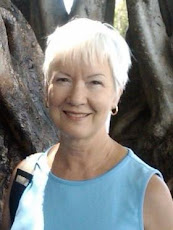

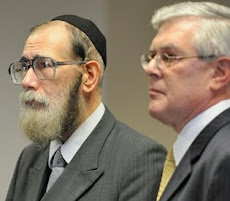

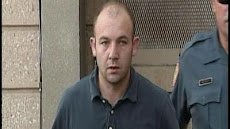









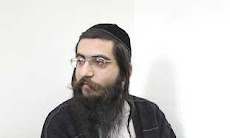





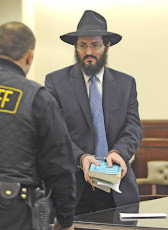














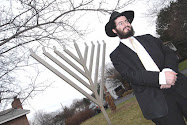




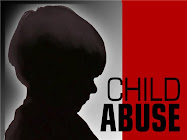













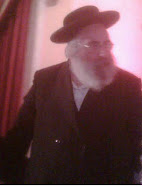



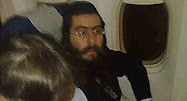




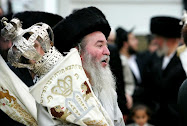


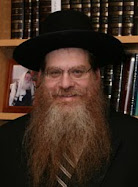












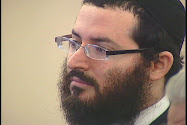
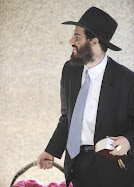
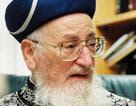









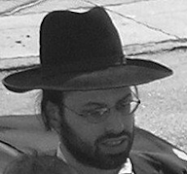

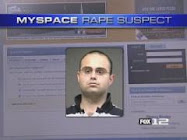









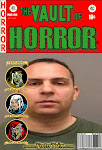












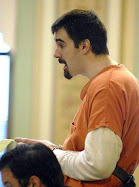


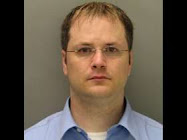


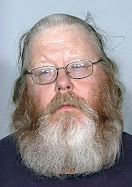

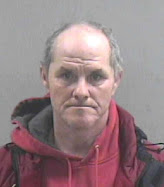
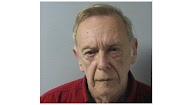
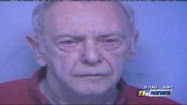













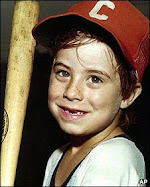

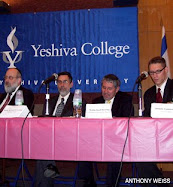

















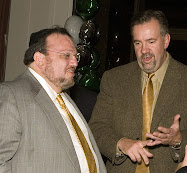
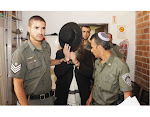



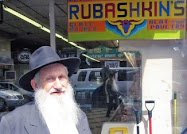















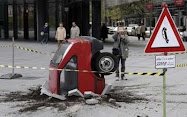










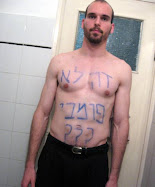
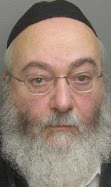












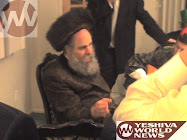






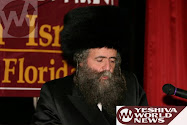


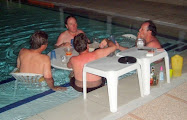

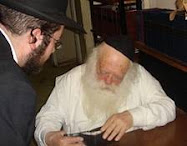

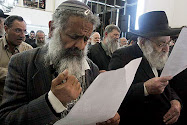
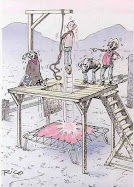
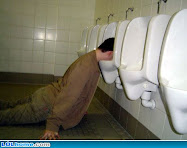



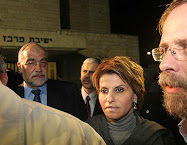
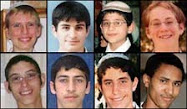
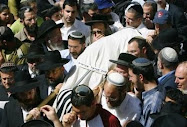
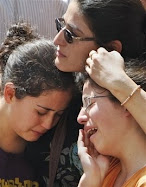
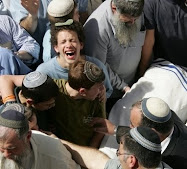
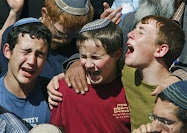
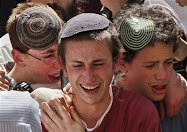
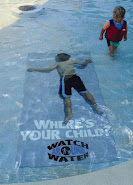

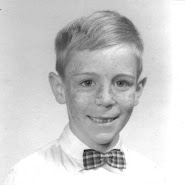







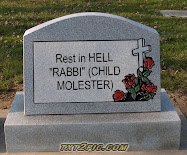
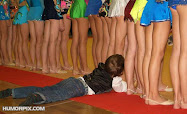







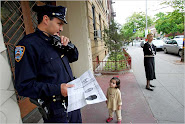















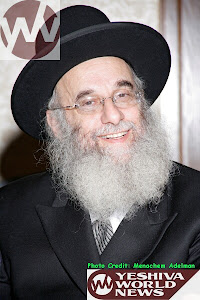

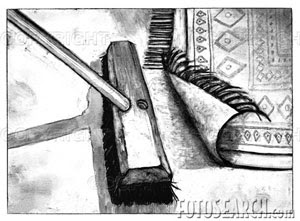
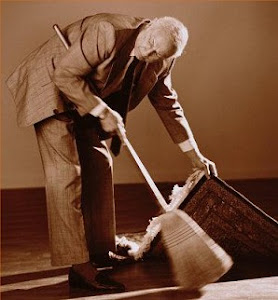











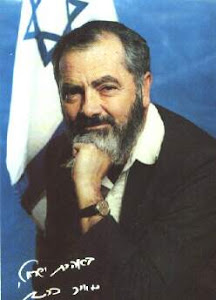

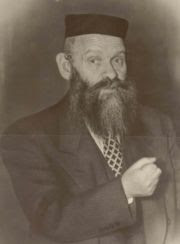




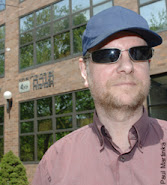


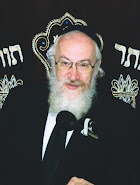





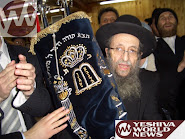

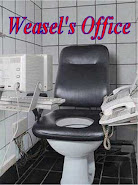



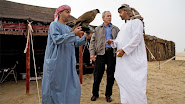


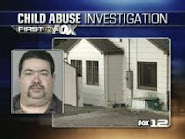
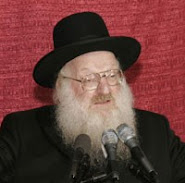

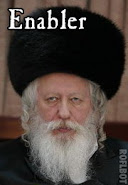



















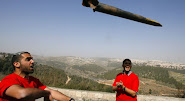
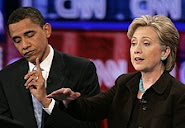


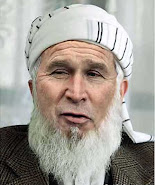









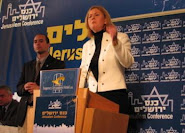


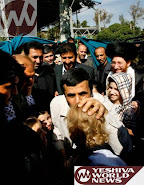
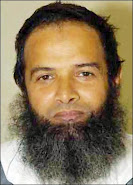


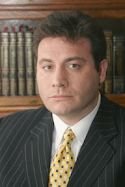


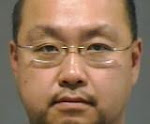
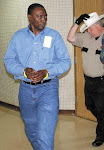

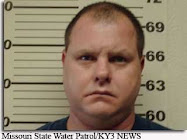



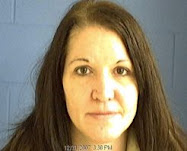
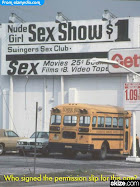

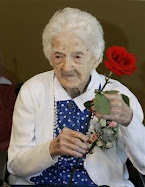

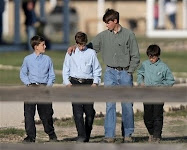



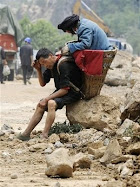



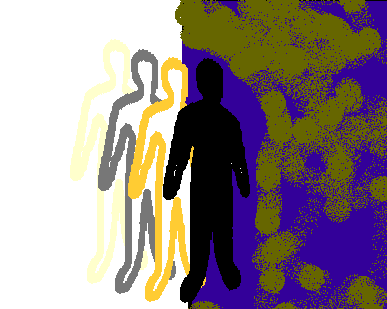

76 comments:
Pol behind sex abuse bill knows a victim's anguish
BY JAMES T. MADORE | james.madore@newsday.com
ALBANY - The anguish of a young man unable to sue the Catholic priest who allegedly abused him sexually years earlier has driven Assemb. Margaret Markey to push for a temporary lifting of the statute of limitations on such cases.
The young man, a friend of Markey's three children, went to her Maspeth home several years ago seeking help. Her husband, Charles, a state Supreme Court judge, determined the claims were too old to be pursued legally.
The young man "told us he was sexually abused by a parish priest and it had happened many years ago," Markey said Tuesday. "It turned out he was time- barred . . . I sat there and I said, 'Well, I'm an assemblywoman, I can do something about this.' "
In 2006, the Democrat introduced a bill giving abuse victims a one-year window to file suit in civil court regardless of how long ago the assault occurred. The measure also adds several years onto the current time limit, which is five years after an accuser turns 18.
Markey's bill has passed the Assembly three times, only to die in the then-Republican-controlled State Senate. She said Tuesday she was "cautiously optimistic" the bill would be adopted now Democrats run the Senate.
She also dismissed the possibility of a veto by Gov. David A. Paterson, who has said he supports a rival bill that doesn't allow a reopening of old claims of sex abuse.
Seeking to improve the chances of passage and combat critics, the press-shy Markey held a news conference Tuesday in the capital with abuse victims and their supporters.
The New York chapter of the National Organization for Women and a prominent group of African-American clergy announced support for the bill.
"It is a shame we have to fight against the [Catholic] church in this," said the Rev. Anthony Evans, president of the 34,000-member National Black Church Initiative. "It breaks my heart."
The Diocese of Rockville Centre and others oppose the Markey bill, saying it unfairly targets the Catholic Church by exempting public schools and other local governments.
The church in New York asserts the bill could bankrupt it here. The bill "involves a thinly disguised targeting of the Catholic Church by a coalition of trial lawyers who seek to enrich themselves by seizing Church properties," according to the state Catholic Conference.
The church backs a bill sponsored by Assemb. Vito Lopez (D-Brooklyn) that contains no "open window" provision.
Markey's legislation is modeled on laws in California and Delaware. Other states such as Colorado, Michigan, New Jersey, Ohio, Pennsylvania and Wisconsin have rejected such measures.
"Most legislatures have seen it for what it is: an unfair, bad bill that selectively targets religious and private institutions, and gives a free pass to public institutions where the majority of the abuse occurs," said the conference's Dennis Poust.
Markey said her bill treats all employers equally. She predicted the Assembly would vote on it soon.
"Off The Derech" is a fantastic book that details the root of the problem(s) and offers some unbelievable insight. For those souls who struggle daily with rejection and betrayal by their Rabbis', teachers, parents etc. - This is a look into other peoples lives which you can relate to your very own. At the very least you will not feel so alone anymore, something the society of Jewish drek are great at implementing to the fullest extent.
Genug with shtusim. You mean to say that when I molested yingerlach it caused them to go off the derech? Genug mit de narreshkeit. You mean that every time I hit boys with my wooden ruler and bare hands it caused them to go off the derech? Enough with such lies. You mean that when shloime mandel also participated in harboring me and also in joining me in beating up little boys that it wasn't the right thing to do and that now these kids are off the derech because of us? Please.. We tried our hardest to be mechanech and this is the reward we get?
Thank you Mr. Hynes for not putting me in jail. I am now free to sexually abuse others and cause them to go off the derech.
---
Man Jailed in Sex Abuse of Teen Boy
By ANNIE DIMMICK
April 22, 2009
CAMERON - John Harness allegedly tried to buy the silence of a sexual assault victim with a muzzleloader and other gifts, but it didn't work.
Now, the 61-year-old Cameron resident is facing two felony counts of sexual abuse by a custodian and two misdemeanor counts of third-degree sexual abuse.
According to Marshall County sheriff's deputies, the 13-year-old victim reported the abuse to a school resource officer on April 9, telling the officer Harness had touched him inappropriately on several occasions. During an interview a few days later, more details emerged, as the alleged victim told investigators the first incident happened close to Christmas 2008, when he was staying overnight at Harness' home with plans to ride all-terrain vehicles the next day. The boy told deputies Harness later gave him a muzzleloader as gift to keep him from saying anything about the alleged abuse.
Deputies said the boy claimed the second incident happened in March during a party. He said Harness gave him a gift, assaulted him later that night, then told him he was a "good boy," deputies said.
Harness was arrested Monday, taken to the Northern Regional Jail and released on $60,000 bond, pending a preliminary hearing.
http://theunorthodoxjew.blogspot.com/2009/04/gedolim-of-agudath-israel-torah.html
---------------------------------------
Tuesday, April 21, 2009
The Gedolim/Rabbis Of The Agudath Israel & Torah Umesorah Have Decided To Keep The Criminal Cover-Up Going Strong!
For Immediate Release: April 21, 2009
For Further Information
Contact: Rabbi Avi Shafran
212 797-9000 ext. #303
Agudath Israel of America and Torah Umesorah – The National Society for Hebrew Day Schools, upon consultation with their respective rabbinic leaderships, respectfully submit this statement regarding legislative proposals to amend existing statutes of limitations for civil claims, including claims against schools and other communal institutions, based on allegations of child sexual abuse. We do so only after much serious thought, after weighing all relevant arguments and for the sole purpose of protecting the most fundamental interests of our community.
Agudath Israel and Torah Umesorah fully acknowledge the horror of child sexual abuse and the devastating long-term scars it all too often creates. Our rabbinic and lay leaderships are acutely aware of the emotional trauma and damage caused by the perpetrators of such abuse. Our hearts go out to their victims, and we share in their pain. We realize that for too long many victims have suffered alone. We are committed as a community to do whatever we can to root out perpetrators of child abuse from our schools and other communal institutions, and to help victims on the road to healing and recovery.
Indeed, in recent years, as awareness has increased and sensitivity has been heightened regarding the incidence of sexual abuse and its severity, both in the broader society around us and in our community specifically, Agudath Israel and Torah Umesorah have taken a number of concrete steps to help ensure that Jewish schools, extra-curricular youth programs and summer camps implement policies and procedures designed to protect children against such abuse. Our organizations have also supported legislative efforts to furnish such protection, including the recently enacted legislation in New York authorizing nonpublic schools to screen all prospective employees through the state’s fingerprint checking system.
With respect to the proposed amendments to existing statutes of limitations, Agudath Israel and Torah Umesorah fully understand that the trauma of abuse is often so great that young adults may not be emotionally prepared to file claims against their abusers within the traditional limitations period. Strict adherence to the existing statutes of limitations could thus operate to preclude certain legitimate claims and protect perpetrators of abuse. Our organizations would therefore have no objection to legislation designed to give victims of abuse greater recourse against perpetrators. Nor would we object to extending statutes of limitations for criminal proceedings against perpetrators.
What Agudath Israel and Torah Umesorah must object to, however, is legislation that could literally destroy schools, houses of worship that sponsor youth programs, summer camps and other institutions that are the very lifeblood of our community.
To take perhaps the most problematic example of such legislation, bills have been introduced in New York and other states that would create a one year window during which any civil claim based upon child sexual abuse could be brought, even against schools and other communal institutions, regardless of how long ago the incident is alleged to have taken place. One could envision a scenario in which a senior citizen might choose to bring a claim against a school for an incident that allegedly occurred over half-a-century ago when the claimant was a child. The fact that the alleged perpetrator may have passed on, or that the administration of the school may have changed several times since the alleged abuse, or that the school no longer has any records or insurance policies dating back to the time the abuse allegedly occurred, or even any records of the individual ever having attended the school, would be of no moment whatsoever under the proposed bill. The current school administration, entirely ignorant of what may or may not have occurred so many years ago, would be forced to defend the school in a court of law, incur the high expenses of legal fees and diversion of human resources, and face potentially crippling financial liability.
It is important to recognize that Jewish schools are independent entities supported wholly by parental tuition and fundraising. Therefore, the burden of litigation expense or legal liability for ancient claims would fall squarely on an entirely innocent group – the current parent body. Needless to say, in today’s perilous financial climate, as many parents are unable to meet even their basic tuition obligations and schools struggle to remain fiscally viable, this burden would be extremely difficult to bear, and could ultimately lead to school closures.
Stated simply, legislation that would do away with the statute of limitations completely, even if only for a one-year period, could subject schools and other vital institutions to ancient claims and capricious litigation, and place their very existence in severe jeopardy.
Agudath Israel and Torah Umesorah most vigorously oppose any such legislation.
We must continue to seek out ways to protect our precious children and help eradicate molestation and other forms of abuse. We must also redouble our efforts to help those who have suffered the horrors of child abuse obtain the healing they so desperately need. However, we dare not bring down our most vital communal institutions in the process.
Agudath Israel of Putzland show their true colors once again. This epitomizes what we all knew. They are a farce organization with endless excuses that don't hold water.
Two Orthodox Groups Are Opposing Sex Abuse Bill
By Rebecca Dube
Published April 22, 2009.
Two influential Orthodox organizations, Agudath Israel and Torah Umesorah – The National Society for Hebrew Day Schools, have come out against a New York State bill that would create a one-year window in which child sex abuse victims could sue their molesters, no matter how long ago the abuse happened.
The bill has been a hot topic this year both in the state legislature, where its fate is uncertain, and in Orthodox Jewish communities, which have been rocked in recent years by allegations of sexual abuse against rabbis and yeshiva teachers.
In addition to creating the one-year window for lawsuits, the bill, sponsored by Assemblywoman Marge Markey, D-Queens, would also extend the statute of limitations by five years for child sexual abuse. The rationale, Markey says, is that it often takes decades for victims of childhood sexual abuse to process what was done to them and to come forward – especially if they were abused at the hands of a trusted authority figure, such as a priest or a rabbi. Similar legislation in California led to the identification of hundreds of previously unknown sexual predators.
Agudath Israel and Torah Umesorah joined the Catholic Church in opposing the legislation. In their statement, the Jewish groups said that they understand the trauma of abuse, but they fear that lawsuits during the one-year period “could literally destroy schools, houses of worship that sponsor youth programs, summer camps and other institutions that are the very lifeblood of our community.”
“…It is important to recognize that Jewish schools are independent entities supported wholly by parental tuition and fundraising,” the statement continues. “Therefore, the burden of litigation expense or legal liability for ancient claims would fall squarely on an entirely innocent group — the current parent body.”
Meanwhile, the National Organization for Women and a prominent organization of African-American clergy came out in favor of the bill, joining sexual abuse survivors at a rally in Albany on April 21.
“Abuse against children is violence,” Rev. Anthony Evans, president of the 34,000-member National Black Church Initiative, at an Albany news conference. “I don’t represent a god who condones violence. It is a shame we have to fight against the [Catholic] church in this.”
Jewish organizations that have previously voiced their support for Markey’s bill include the (Orthodox) Rabbinical Council of America and the Union for Traditional Judaism. The United Jewish Organizations of Williamsburg, a Brooklyn group dominated by the Satmar Chasidic sect, opposes it and favors an alternative bill that would extend the statute of limitations, but would not include the one-year window for litigation.
Assemblyman Dov Hikind, D-Brooklyn, distributed a letter on April 22 asking Agudath Israel to reconsider, and suggesting possible compromises to make the one-year window more amenable, such as a cap on abuse victims’ financial awards or limits on plaintiffs’ attorneys contingency fees.
“Achieving justice for the victims need not come about as a result of the financial demise of our greatest institutions,” Hikind wrote. ”But neither can we forsake those who have already sacrificed far too much.”
Haredi Groups Oppose Abuse Bill
by Hella Winston
Two major haredi organizations came out Tuesday against a bill pending in the New York State legislature that would extend the statute of limitations on child sexual abuse and create a one-year window during which alleged victims could file civil claims, regardless of when the abuse took place.
In a joint press release, Agudath Israel of America and Torah Umesorah, the National Society for Hebrew Day Schools, said they would not “object to extending statutes of limitations for criminal proceedings against perpetrators,” but “must object to ... legislation that could literally destroy schools, houses of worship that sponsor youth programs, summer camps and other institutions that are the very lifeblood of the community.”
This statement puts them in the same camp as the Catholic
Church, which is vocal in its opposition to the bill, sponsored in the Assembly by Margaret Markey of Queens and in the Senate by Tom Duane of Manhattan, both Democrats . A similar window provision in California cost the Church over $1.2 billion in settlements, but publicly identified 300 sexual predators.
Marci Hamilton, a professor at Cardozo Law School, citing the experience of California and Delaware, which also enacted window legislation, said “rejection of the window legislation would be a conscious choice to keep the predators hidden and to facilitate their further abuse of even more children.”
Lonnie Soury, a spokesman for Survivors for Justice, a group of survivors of childhood sexual abuse in the Orthodox community, expressed dismay.
“While far from shocking, the cold pragmatism of this rabbinical leadership is reprehensible,” Soury said.
http://www.thejewishweek.com/viewArticle/c352_a15520/News/Briefs.html
I am against senior citizens who think they are permitted to sue their rebbeim and yeshivas many years after the fact.
“must object to ... legislation that could literally destroy schools, houses of worship that sponsor youth programs, summer camps and other institutions that are the very lifeblood of the community.”
Backwards logic is what we see here. So better that we don't allow survivors any recourse, because the institutions and individuals who turned a blind eye and aided in the abuse should not be shut down or go bankrupt.
No wonder there are hundreds of off the derech people who are floating around. BLAME AGUDAH. BLAME TORAH UMESORAH. BLAME THE WICKEDNESS OF "RABBIS' WHO WOULD RATHER SAVE FACE THEN SAVE JEWISH LIVES!!!
THIS ONLY SERVES TO WORSEN THE SITUATION AND PUSH US AWAY FROM JUDAISM! FEH!
New lawsuit accuses Palm Beach financier Jeffrey Epstein of sexual abuse
By SUSAN SPENCER-WENDEL
Palm Beach Post Staff Writer
Tuesday, April 21, 2009
WEST PALM BEACH — The line of civil lawsuits against billionaire financier Jeffery Epstein has grew again, with the filing of at least the twelfth claim by a young woman who also says she was lured to his Palm Beach manse as a teen and sexually abused.
Prominent Miami attorney Robert Josefsberg filed the most recent federal lawsuit last week, on behalf of the Jane Doe 101 who allegedly visited Epstein a few times while 17 years old and was paid $200 at least once for her time there, according to the complaint.
The lawsuit mirrors facts alleged in a multiple other suits: that Epstein had a predilection for teenage girls, identified poor, vulnerable ones and lured them to his home via other young women. The teens describe ascending a staircase lined with nude photographs of young girls and to the spa room where Epstein would appear in a small towel.
Miami attorney Adam Horowitz, who represents six other Jane Does, said Monday that the cases are still in the "discovery" process, with plaintiffs requesting from Epstein phone records, pictures, videos. Horowitz said Epstein is refusing to turn over the materials, citing a Fifth Amendment right not to do so. "Stonewalling and delaying," Horowitz said. "I'm not surprised."
Horowitz said he has asked U.S. District Judge Kenneth Marra to order Epstein to turn over the information.
A local attorney for Epstein, Jack Goldberger, did not respond to a request seeking comment.
Epstein was jailed in July 2008 following a plea deal where he was sentenced to 18 months in jail for solicitation of prostitution and procuring a person under the age of 18 for prostitution and must register as a sex offender. He is serving his sentence at the Palm Beach County Stockade, according to jail records, and is due out in September.
Find this article at:
http://www.palmbeachdailynews.com/news/content/news/2009/04/21/pbpepstein0421.html
They tore down the old yob building where so much abuse took place. beezrat hashem they will tear the new building down or turn it into a church. The mandel's have succeeded in turning people into becoming non-observant. May they rot in hell of hells, and may their 100 years of physical, sexual, and emotional abuse come to a screeching halt pronto.
We are against senior citizens such as Adam Walker.
A former student is working for protection against sexual predators in schools. Adam Walker spoke out Monday about sexual abuse he says happened from 1992 to 1995. He has filed a civil law suit against his former teacher Bradley Barrett, the Logan-Rogersville district, and then-principal John Hetherington.
The former student says as music teacher, Barrett abused him on school property and choir trips across the country.
Barrett now teaches at University of Northern Iowa. He was suspended last week after Walker held a similar press conference at the college. Walker says he's just now coming to grips with the abuse that happened when he was a teen. He's talking about it in hopes of helping others.
"I hate that it happened to me," says Walker. "It was horrific. I didn't deserve it. But if other people can find strength and learn and keep it from happening then it makes it worthwhile."
Barrett's attorneys issued a statement on Monday evening. They say it's regrettable that Walker is acting outside the appropriate forum for this matter. Attorneys add Barrett is innocent until proven guilty in a court of law.
The Logan-Rogersville School District believes statute of limitations offers protection. The Superintendent says a motion is filed to dismiss the case.
I can't say I lost respect for AY or TU, because they did not have have it from me to begin with, but I will say that after reading their bitter opposition to the Markey bill, I can never ever look at these donkeys the same. An absolute debacle and ingenuous show of good faith is how I see it. Terrible injustice to all the neshamas they ripped apart. Shame...
These clowns dressed like roshei yeshivas care more about the hechsher of what they eat than the emotional well being of Jewish children. Ridiculous bozos who have their priorities nestled in quicksand.
The Rabbis told me to keep my story quiet. They misled me into believing the perpetrator would be dealt with. They lied.
What's the difference between President Mahmoud Ahmadinejad and these Rabbis?
The answer is Ahmadinejad is evil and doesn't try hiding it, while the Rabbis and Jewish leaders have abandoned sex abuse survivors like pieces of trash, and all the while would like us to believe they are pious men of GOD.
Sexual abuse suspect kills self in Mobile as police arrived to question man
By Associated Press
9:28 AM CDT, April 23, 2009
MOBILE, Ala. (AP) — Police say 50-year-old Donald Clark Brooks shot and killed himself at his home in Mobile when officers attempted to question him in a sexual abuse probe involving several teenage boys.
Brooks, who died Wednesday from a gunshot in the head, had served a prison term for sodomy. An arrest in 1993 for first-degree sexual abuse was ultimately dismissed. Court records also show that Brooks was arrested on sodomy charges in 2002, though a grand jury never indicted him.
In this latest case, police say Brooks lured boys into his home by offering work. Once inside, police say they engaged in sexual activities.
Police say two victims were 15-years-old and another was 13.
Brooks faced several charges, including sodomy, enticing a minor, sex abuse and furnishing alcohol to a student.
___
Information from: Press-Register, http://www.al.com/mobileregister
OPINION:
NY must give child sex abuse victims more time
BY RICHARD B. GARTNER
April 22, 2009
Richard B. Gartner, a psychologist and psychoanalyst in New York City, is the author of "Beyond Betrayal: Taking Charge of your Life after Boyhood Sexual Abuse."As the New York State Assembly considers two competing bills to extend the statute of limitations on child sexual abuse crimes, astonishingly little has been said about the prevalence, effects or economic and social costs of such crimes. These factors demonstrate the urgent need for a lengthened window for justice, which will help enable victims to heal.
The Centers for Disease Control and Prevention estimates that about one in five American children is sexually abused. So in a classroom of 25 children, five will be victimized before adulthood.
Abusers prey on the most susceptible, often choosing children already at risk: isolated, weaker, smaller, nonathletic, disabled or from a disadvantaged minority. Victims may have troubled, addicted or physically abusive families, or be separated from their parents. They look to other adults for healing, advice and emotional support. Abusers profess to offer solace while laying the groundwork for victimization.
Common aftereffects of childhood sexual trauma include anxiety, depression, drug and alcohol addiction, prostitution, truancy, poor grades and even suicide - all of which, aside from the personal tragedy, carry a huge social and financial cost to the state.
Since predators commonly hurt numerous victims, stopping even one may protect many children from abuse. But this is impossible when the clock on access to justice runs out.
Victims are often criticized for not coming forward sooner. But this is because they usually know their victimizers, most of whom are either family members or caretakers in positions of power and trust - teachers, scout leaders, baby-sitters, coaches, clergy, camp counselors, health care professionals and others. Abusing their positions, they betray children's trust to satisfy their own needs. This betrayal creates shaky foundations for the children's future relationships. Frightened of closeness, they often stay isolated and distant.
Shame also silences victims, who typically minimize their trauma for decades as a means of warding off painful humiliation. They also fear disclosing abuse because they have no faith they will be believed - and with good reason. Stories abound of children being told they are inventing lies about pillars of the community or, worse, being blamed for "seducing" these adults.
Abusers also keep their victims quiet with threats of harm against the children or their families. They may be told they will be taken from their homes and put in foster care or even prison if they tell.
So they desperately try to forget what happened. Research confirms the capacity of the human brain to stop conscious recall of traumatic information. In war veterans, Holocaust survivors and even crime victims, the brains' ability to protect itself by blocking unwanted memories is well-documented.
These memories can later be validly recalled, and false claims of childhood sexual abuse are exceedingly rare - and are often detectable. But, while any law providing a pathway to justice can be violated by frauds, it simply isn't responsible public policy to prevent access to justice for all victims to avoid the atypical false case.
When victims come forward, institutions usually stonewall, disavow culpability and deny abuse exists under their auspices. Schools, athletic organizations, religious institutions, scouting and camping groups, and others try to insulate themselves from responsibility for the harmful behavior of people who work for them. And so, victims are betrayed again.
This brings us to the larger institution: the state. The statute of limitations for sexual abuse - five years after age 18 - is woefully inadequate. It encourages abusers to increase their silencing efforts, ensuring the victim stays quiet long enough for the clock to run out. It also gives institutions incentive to provide only temporary remedies and support - just long enough for the statute to expire.
Such a short limitation period punishes victims for their blameless role in becoming silenced, while rewarding offenders for preying on children. So it makes sense to create a one-year window in which victims can charge predators and any organizations that demonstrably shielded them, as the bill sponsored by Assemb. Margaret Markey (D-Maspeth) does. People who have been disenfranchised by the statute should be permitted to get redress for wrongs done to them. The other bill, sponsored by Assemb. Vito Lopez (D-Brooklyn), doesn't include this key element, nor does it extend the statute of limitations nearly enough.
The statute of limitations must be lengthened until victims are old enough to face their abusers and the institutions shielding them. These men and women were abused as children by sexual predators, and then again by institutions that countenanced crimes. New York State must not re-victimize them by continuing to protect predators and institutions.
Turn off the lights in the 1sts grade classrooms. Here comes gehonim. That'll teach kids to fear god. This is insane.
Let me clarify. 20 years on the lam is already too old to prosecute and falls under what we (Agudah) would consider senior citizen status.
-------------------------------------
April 26, 2009
Cops seek convicted man nearly 20 years after sex abuse in Piscataway
By KEN SERRANO
Staff Writer
The crime is nearly 20 years old, but investigators are still looking for Joao Viriato Simoes.
Simoes was convicted in 1998 of having sex contact with a 14-year-old Piscataway girl eight years earlier while her mother was working.
He was originally charged with sexually assaulting the girl, but the jury found him guilty of molestation as well as child endangerment. Before they reached the verdict, Simoes, now 45, slipped away and has been on the lam ever since.
Authorities said the victim divulged the sexual abuse to her mother in 1995 when she was 19. The mother told police on July 9, 1995, that Simoes, a one time friend of the mother's, had sex with the girl on several occasions in April 1990.
Simoes was arrested at his place of work in Hillsborough the day after the allegations came to light. He was freed on $15,000 bail and indicted in September 1995.
The Portuguese-born Simoes was 5 feet, 7 inches tall and weighed 180 pounds at the time of his arrest.
He has green eyes and brown hair. His last known address was 1289 Bright St., Hillside, and in South River.
The Middlesex County Prosecutor's Office is asking anyone with information on the fugitive to call 732-745-3362 during weekdays and 732-745-3300 on nights and weekends.
Authorities are urging anyone coming into contact with Simoes not to try to apprehend him.
The Prosecutor's Office is offering rewards of up to $500 for information leading to the capture of county fugitives.
Wow, this guy is mamesh gevaldic. Maybe he can teach me a few luring tricks.
RIVERHEAD, N.Y. (AP) - A Long Island karate instructor who admitted molesting a dozen boys has been sentenced to as many as 18 years in state prison.
James Bonfiglio (bahn-FIG-lee-oh) pleaded guilty in March to 60 counts, including sex abuse, possession of child pornography and endangering the welfare of children.
The former owner of Excel Karate Academy in Ronkonkoma molested the boys from 2003 until his arrest in October 2007. Suffolk County Court Judge Barbara Kahn indicated she accepted Bonfiglio's guilty pleas so the victims wouldn't have to testify about the offenses in open court.
Detectives found graphic video on Bonfiglio's computer and cameras hidden in the bathroom of his Ronkonkoma apartment and karate school. He must serve a minimum of 6 years and also faces 10 years probation.
Police are searching for two people who placed a burning cross on a desk inside an all-girls Jewish school in Union City Wednesday, according to a report on Fox 5.
The report said the suspects broke into Bnos Sanz School at around 9:30 p.m., built a cross out of wood and then set it on fire, damaging desks and other property in the school.
The school is located at 3300 New York Avenue.
I read "off the derech" and was very impressed. At least I know that I am not alone and that there are others like me.
Slapping kids in the face is my expertise..
----------------------------------
Rabbi Ovadia: Smoking students should be slapped
Speaking during his weekly sermon Saturday evening, the rabbi said that "if a person sees his son smoking a cigarette, he should shout at him and defend him and stop him from doing it… A yeshiva head who has a meeting and sees his student smoking, should slap him in the face. What are you smoking for?"
Rabbi Ovadia: Smoking students should be slapped
In his weekly sermon, Shas' spiritual leader defines smoking as 'a breach which must be prevented', calls on parents and teachers to act against it. He also offers tips for quitting habit
Kobi Nahshoni
Published: 04.27.09, 11:56 / Israel Jewish Scene
Shas' spiritual leader, Rabbi Ovadia Yosef, called on parents and teachers to act to prevent smoking among youth, a phenomenon which he referred to as "a breach which must be thwarted."
Speaking during his weekly sermon Saturday evening, the rabbi said that "if a person sees his son smoking a cigarette, he should shout at him and defend him and stop him from doing it… A yeshiva head who has a meeting and sees his student smoking, should slap him in the face. What are you smoking for?"
Up in Smoke
Deputy health minister wants new tax on cigarettes / Meital Yasur-Beit Or
MK Litzman bids for NIS 1 tax on every pack of cigarettes, says revenues could reach NIS 300 million which, in turn, could be used to fund anti-smoking campaigns
Full story
Rabbi Yosef, who spoke during the sermon about the laws allowing smoking during holidays, stressed that dealing with the issue does not make it legitimate.
"It's very bad. Whoever can quit – blessed be he," he added. "It damages a person's body… puts smoke inside his lungs, God forbid, it stupefies the lungs, the lungs can't operate. There are people who die of this thing… Some rabbis have written that it's strictly forbidden."
The rabbi went on to slam yeshiva students' habit to hand out cigarettes to their friends after getting engaged. "This is stupid. Why are you getting used to cigarettes? It starts with one cigarette, and then they get used to it. You want to give them gifts? Hand out candy."
'Cut every cigarette in half'
Addressing people's addiction to smoking, Yosef said, "On Shabbat they keep on looking at the stars to see the three stars come out so that they can smoke cigarettes again. And there are those who hide a cigarette at the synagogue and tell the manager, 'After the Havdala (ceremony at termination of Shabbat), let me smoke immediately.' Poor things. They've gotten used to it."
So how does one quit? "Stop smoking one cigarette every day," Rabbi Yosef recommended. "How many cigarettes do you smoke? Thirty a day? Tomorrow have 29, the day after tomorrow 28. When you only reach 10 – is 10 difficult? Cut every cigarette in half. You had 10 – now you have 20."
Advertisement
Rabbi Yosef also spurned Deputy Health Minister Yakov Litzman's proposal for a new tax on cigarettes, saying, "Now the health minister proposes making another shekel for every pack of cigarettes to get people to abstain. That's a lie. What will this give? Whoever pays 20 shekels will add one more shekel – so what? It won't do any good or bad."
The rabbi also took advantage of the lesson to convey a special greeting to Iranian President Mahmoud Ahmadinejad. "There used to be a king, the king of Persia, who was very sick," he said. "I hope it happens soon to the president of Persia."
Where are my Netuei Karta brothers when I need them?
Ovadia Yosef can't insult me like that.
The Jews had perpetrated numerous uglier holocausts against other nations (Goyim) than they have suffered on the hands of the Nazis. Yet there was no mention of the holocausts ancient Israelites perpetrated against the indigenous people of the Middle East. There was no mention of the holocaust of African slaves, who lost an estimated 99 millions in a span of a hundred years, while being transported on slave ships belonging to Jewish slave traders such as Aaron Lopez, Moses Levy, Moses Seixas and many others. The Carnegie Institute in Washington DC contains authentic incriminating documentation entitled “Documents Illustrative of History of Slave Trades in America” (Who Brought the Slaves to America? By Walter White).
There was no mention of the 100 million Christian Russians who were exterminated by the Jewish Commissars under the orders of Leon Trotsky (a Jew) in 1917-1945. Russian Jews were also responsible for the killing of 65 million other Christians in the Bolshevik Revolution. Ten million Ukrainians were murdered and starved to death by Stalin and his Jewish Cheka (pre-KGB secret police) led by his Jewish brother-in-law Lazar Kagnovitch, who was also responsible for mass execution in Estonia, Latvia and Lethuania, and the murder of three million Moslems in USSR, and the massacres of Cossaks and Volga Germans. All accounted for at least 40 million deaths (holocausts)
All these holocausts, and many others, are well documented historical events, while the Jewish Holocaust is surrounded by many doubts and denials. It is a real perplexing issue that any scientific study of this holocaust is met by resistance and is severely punishable by laws. What happens to the freedom of expression and to scientific research when it comes to Jewish matters? One wonders what secrets such studies would reveal, and why wouldn’t they refute these denials by such studies once and for all. What is so taboo and illegal about studying any historical event?
Racist Jewish Israel is the most dangerous terrorist tool controlled by behind -he-scene Western Zionist power elite. Armed with the most devastating Western-made weapons and with its own WMD Israeli government constitutes a grave danger to the Middle East and to the world peace.
Dr. Elias Akleh a contributing editor to MWC, is an Arab writer from a Palestinian descent born in the town of Beit Jala. His family was first evicted from Haifa after the “Nakba” of 1948, then from Beit Jala after the “Nakseh” of 1967. He lives now in the US, and publishes his articles on the web in both English and Arabic. http://mwcnews.net/eliasakleh
Scuffle breaks out between ultra-Orthodox, secular Jews at J'lem protest
Apr. 23, 2009
JPost.com Staff , THE JERUSALEM POST
A small scuffle broke out on Thursday afternoon between ultra-Orthodox (haredi) and secular Jews in Jerusalem's Shmuel Hanavi neighborhood on Thursday afternoon.
The haredim had gathered for a demonstration demanding that Egged and the Transportation Ministry arrange bus lines that segregate men and women in areas where the majority of residents are ultra-Orthodox.
Some of the haredim spat at the secular Jews who were holding a counter-protest and grabbed some of the signs they were holding.
No one was wounded.
This article can also be read at http://www.jpost.com /servlet/Satellite?cid=1239710772566&pagename=JPArticle%2FShowFull
Elephant exodus reported from troubled Zimbabwe
By ANGUS SHAW, Associated Press Writer Angus Shaw, Associated Press Writer Mon Apr 27, 3:26 pm ET
HARARE, Zimbabwe – Growing pressure from poaching and human encroachment in Zimbabwe has driven hundreds of elephants to migrate from the country and at least one leopard to stalk an upmarket Harare suburb, conservationists said Monday.
The independent Zimbabwe Conservation Task Force appealed in its latest monthly bulletin for more action — and money — to preserve the troubled nation's wildlife.
In Zimbabwe's economic meltdown, "humans are encroaching more and more into areas previously reserved for wildlife," the task force said.
As many as 400 elephants have crossed the Zambezi River, which separates Zambia from northern Zimbabwe, in recent months, said Johnny Rodrigues, head of the task force....
Rabbi Shimon Rosenberg, the father of Rivka Holtzberg, who was slain along with her husband Rabbi Gavriel Holtzberg in the horrific terror attack in Mumbai in November 2008, spoke at the ceremony at Mount Herzl.
"This year, my wife Yehudit, myself and the entire family, God bless them, joined the family of dolor, pain and incessant longing - and with every day that passes, the pain grows stronger," he said. "On the other hand, the faith in the Lord, the Rock of Israel, grows - and this gives us the strength to cope with all the hardship."
"Dear bereaved families," he said. "As a member of a bereaved family, I recognize and know your pain, the pain that accompanies the family members every day, and is not focused on a particular day or event. Today, Remembrance Day for the fallen of Israel's wars and those who fell in terrorist attacks, the entire State of Israel, bows its head with you and to you, salutes the fallen and embraces you."
The prime minister said that the entire country stands with the victims' families and remembers and recalls the relatives who are no longer among the living.
"Unfortunately, there were those among our children who fell this year as well, and again, parents, spouses, siblings and children - all numbed by the pain - have joined the bereaved," he said.
OLEAN - Andrew Widger answers with a mix of hope and resignation when asked if he thinks there will ever be an end to child sex abuse.
“I hope so,” he says. “It may never stop entirely, but if we can just make a dent in it, it will be worth it.”
For 12 years, Mr. Widger has been the case supervisor at the Cattaraugus County Department of Child Protective Services (CPS). He spent nine years before that working as a CPS case worker, helping children.
He said research revealed that many adults who sexually prey on children were sexually abused as children themselves. Mr. Widger said because child sexual abuse is often a generational problem, it’s critical that abused children get help as early as possible to help break the cycle of abuse.
Psychologist Dr. Craig Zuckerman has been treating child victims of sexual abuse for 26 years. He’s also a professor at St. Bonaventure University. Dr. Zuckerman said while it may seem as if there is an explosion of child sexual abuse cases, that’s only because the public is becoming more aware of the problem. He said in recent surveys, 25 to 50 percent of adults report they had an inappropriate sexual experience with an adult when they were children. Those adults were children in the 1960s and 1970s.
Dr. Zuckerman said every caring adult in the community needs to be involved to protect children and prevent child abuse.
“I think as a community, it’s important that there is open public discussion about the problem,” he said. “It’s also very important that there is an atmosphere in every single child’s home where they feel comfortable disclosing any problems they may have.”
Both Dr. Zuckerman and Mr. Widger are members of the multidisciplinary team at Southern Tier Health Care System’s Southern Tier Child Advocacy Center on Main Street in Olean. Team members help abused children, giving them medical care and counseling while gathering evidence to convict their abusers. For more information on the center, visit www.southerntiercac.org.
Both Mr. Widger and Dr. Zuckerman said the Child Advocacy Center has helped ease the trauma suffered by abused children. Before the center opened in 2007, abused children were shuffled from agency to agency, having to tell their story over and over.
“We all had cases where kids said, ‘I’m not going to talk anymore’ because they were traumatized by multiple interviews,” Dr. Zuckerman said. “I am certain that cases go better today because of the CAC. My colleagues that use the CAC are doing phenomenal work.”
Dr. Zuckerman said pedophiles are skilled at masking their activity; lying to everyone around them, sometimes even themselves.
“There are people that have such well-developed personality disorders that they believe their own lies,” he said.
Mr. Widger said because pedophiles are so good at blending it, it’s up to parents to protect children by not putting them in situations that allow them to be abused.
Mr. Widger said because pedophiles are so good at blending it, it’s up to parents to protect children by not putting them in situations that allow them to be abused.
“One of the best things you can do is keep your eyes and ears open,” he said. “Know who your children are spending time with, get to know the parents of their friends.”
Mr. Widger said it’s a popular misconception that strangers prey on children. He said it happens, but it’s rare.
“The vast majority of cases we see involve stepfathers and live-in boyfriends,” he said, quickly adding that as a stepfather himself, he knows the vast majority of stepfathers are good parents.
Mr. Widger said moms need to be vigilant when they start dating following a divorce.
“Once you have kids, they should be the priority,” he said. “Get to know the person before you let them spend time with your kids.”
He said parents should ensure their children have privacy when they change their clothes and go to the bathroom. Parents also need to recognize pedophile behavior. Mr. Widger said moms often mistake pedophile grooming behavior as the new man in their life just liking children.
Dr. Zuckerman said “grooming” is the term used to describe the process a pedophile uses to gain the trust of a child and their parent so the pedophile will eventually be left alone with the child. He said a pedophile will devote long periods of time, months if necessary, to gain that trust.
“It’s a very calculated, gradual process, building trust with a child and their parent,” he said.
Mr. Widger said when he interviews the mothers of abused children; they often relate grooming behavior by their former boyfriends or husbands.
“They’ll talk about how he was always wrestling on the floor with their kids and how great he is around children, how he’s always spending time with the kids,” Mr. Widger said.
He said he’s even seen cases where mothers knowingly welcomed paroled sex offenders into their homes.
“They always say, ‘Oh, he would never hurt my children, he’s so wonderful with my children,’” he said.
Dr. Zuckerman and Mr. Widger said parents also need to listen to their children and believe them if they say someone is abusing or hurting them.
“We’ve had cases where the child has disclosed abuse to the non-offending parent, usually the mother, and mother doesn’t believe them or doesn’t want to believe them,” Mr. Widger said. “They confront the stepfather or boyfriend, and, of course, they deny it.”
He said if your child tells you someone is abusing them, you should dial 911 to contact your local police department or call the New York State Child Abuse Hotline at (800) 342-3720.
“When your kids reach out to you for help, you should listen to them and support them,” he said.
April is National Child Abuse Prevention month. This article is the last of a four-part series highlighting the problem of child abuse in the community. Child Advocacy Center Director Karen Hill said the struggle to end child abuse will continue on.
“I want to thank the Olean Times Herald for supporting Southern Tier Health Care System and its Child Advocacy Center in our campaign to raise awareness of the prevalence of child abuse in our community,” Mrs. Hill said.
For more information on the Child Advocacy Center, visit www.southerntiercac.org.
A fair approach to sex abuse
Richard B. Gartner ["We can't let clock run out on justice," Opinion, April 23] supports the bill sponsored by Assemb. Margaret Markey (D-Maspeth) to extend the statute of limitations on child sexual abuse crimes because of the one-year window in which "victims can charge predators and any organizations that demonstrably shielded them."
Gartner fails to mention that current New York State law treats the victims of abuse unequally. Victims of sexual abuse that occurred in public settings are denied the five years to file a civil suit that other victims have. The law requires them instead to file a notice of claim within 90 days or lose their claim to any legal redress.
The Markey bill does nothing to rectify this protective shield for government-connected child abusers. By having two sets of rules dependent upon whether the abuse occurred in a private or public setting, the authors of the bill are more interested in harming the Catholic Church than in redress for the victims of the heinous and sinful act of child sexual abuse.
You see, the Markey bill is silent concerning child sex abuse occurring in the public schools. The alternative Lopez-Kruger bill treats all sexual abuse victims and all institutions fairly and evenly.
Sean P. Dolan
Rockville Centre
Agudah And Torah Umesorah Joint Statement On Abuse-Claims Legislation
Agudath Israel of America and Torah Umesorah–The National Society for Hebrew Day Schools, upon consultation with their respective rabbinic leaderships, respectfully submit this statement regarding legislative proposals to amend existing statutes of limitations for civil claims... including claims against schools and other communal institutions, based on allegations of child sexual abuse. We did so only after much serious thought, after weighing all relevant arguments, and for the sole purpose of protecting the most fundamental interests of our community:
Agudath Israel and Torah Umesorah fully acknowledge the horror of child sexual abuse and the devastating long-term scars it all too often creates. Our rabbinic and lay leaderships are acutely aware of the emotional trauma and damage caused by the perpetrators of such abuse. Our hearts go out to their victims, and we share in their pain. We realize that for too long many victims have suffered alone. We are committed as a community to do whatever we can to root out perpetrators of child abuse from our schools and other communal institutions, and to help victims on the road to healing and recovery.
Indeed, in recent years, as awareness has increased and sensitivity has been heightened regarding the incidence of sexual abuse and its severity, both in the broader society around us and in our community specifically, Agudath Israel and Torah Umesorah have taken a number of concrete steps to help ensure that Jewish schools, extra-curricular youth programs, and summer camps implement policies and procedures designed to protect children against such abuse. Our organizations have also supported legislative efforts to furnish such protection, including the recently enacted legislation in New York authorizing nonpublic schools to screen all prospective employees through the state’s fingerprint checking system.
With respect to the proposed amendments to existing statutes of limitations, Agudath Israel and Torah Umesorah fully understand that the trauma of abuse is often so great that young adults may not be emotionally prepared to file claims against their abusers within the traditional limitations period. Strict adherence to the existing statutes of limitations could thus operate to preclude certain legitimate claims and protect perpetrators of abuse. Our organizations would therefore have no objection to legislation designed to give victims of abuse greater recourse against perpetrators. Nor would we object to extending statutes of limitations for criminal proceedings against perpetrators.
What Agudath Israel and Torah Umesorah must object to, however, is legislation that could literally destroy schools, houses of worship that sponsor youth programs, summer camps, and other institutions that are the very lifeblood of our community.
To take perhaps the most problematic example of such legislation, bills have been introduced in New York and other states that would create a one-year window during which any civil claim based upon child sexual abuse could be brought, even against schools and other communal institutions, regardless of how long ago the incident is alleged to have taken place. One could envision a scenario in which a senior citizen might choose to bring a claim against a school for an incident that allegedly occurred over half-a-century ago, when the claimant was a child. The fact that the alleged perpetrator may have passed on, or that the administration of the school may have changed several times since the alleged abuse, or that the school no longer has any records or insurance policies dating back to the time the abuse allegedly occurred—or even any records of the individual ever having attended the school—would be of no moment whatsoever under the proposed bill. The current school administration, entirely ignorant of what may or may not have occurred so many years ago, would be forced to defend the school in a court of law, incur the high expenses of legal fees and diversion of human resources, and face potentially crippling financial liability.
It is important to recognize that Jewish schools are independent entities supported wholly by parental tuition and fundraising. Therefore, the burden of litigation expense or legal liability for ancient claims would fall squarely on an entirely innocent group—the current parent body. Needless to say, in today’s perilous financial climate, as many parents are unable to meet even their basic tuition obligations and schools struggle to remain fiscally viable, this burden would be extremely difficult to bear, and could ultimately lead to school closures.
Stated simply, legislation that would do away with the statute of limitations completely, even if only for a one-year period, could subject schools and other vital institutions to ancient claims and capricious litigation, and place their very existence in severe jeopardy. Agudath Israel and Torah Umesorah most vigorously oppose any such legislation.
We must continue to seek out ways to protect our precious children and help eradicate molestation and other forms of abuse. We must also redouble our efforts to help those who have suffered the horrors of child abuse obtain the healing they so desperately need. However, we dare not bring down our most vital communal institutions in the process.
Cops are supposed to serve and protect. They betrayed their badges and the public's trust. Much the same way the Rabbinical landscape has turned their backs on child sex-abuse survivors. Rabbis/Donkeys- RESIGN!
==================================
newsday.com/news/printedition/longisland/ny-nycops2912705738apr28,0,3994405.story
Newsday.com
Ray Kelly blasts 2 NYPD cops charged in rape
BY ROCCO PARASCANDOLA
rocco.parascandola@newsday.com
2:03 PM EDT, April 28, 2009
Police Commissioner Ray Kelly doesn't often comment when police officers are charged with a crime. Tuesday, he made an exception, lambasting two on-duty officers charged in the rape of a drunken, semiconscious woman they escorted into her East Village apartment.
"It is the shocking aberration, in stark contrast to the outstanding work that the men and women of the New York City Police Department do every day on the streets of our city," Kelly said. "It is simply outrageous that police officers are summoned to help and are alleged to have taken advantage of this woman.
"The public needs to know that the police are there to protect them."
Officers Kenneth Moreno, a 17-year veteran, is accused of raping the woman while his partner, Franklin Mata, a three-year veteran, allegedly stood by and did nothing, authorities said.
The 9th Precinct officers surrendered Tuesday morning at the Manhattan district attorney's office and were charged with rape and official misconduct. They also were charged with burglary, for twice going back to her apartment, authorities said, actions caught on surveillance video.
Moreno was also charged with heroin possession, though it is not yet clear why the drug allegedly was found in his locker.
Both officers, through their lawyers, denied the allegations, and colleagues have suggested that the sex between Moreno and the 27-year-old woman was consensual.
The victim's blood-alcohol level was between .20 and .33, more than double the legal limit, said Manhattan District Attorney Robert Morgenthau.
Police sources said the probe focused in part on the issue of consent, with investigators arguing that the woman's physical condition made it impossible for her to consent.
The victim spent the hours before the incident drinking with friends in Brooklyn.
Her friends put her in a taxi cab and instructed the driver to take her to the East Village, but when the driver got there she vomited in the car and couldn't pay the fare, sources said.
Authorities and sources familiar with the incident said video from a bar near the woman's residence show the officers - in uniform - helping the woman into her East 13th Street building.
They are seen leaving the apartment seven minutes later, but returning two more times, staying for about 17 minutes and then 34 minutes, Morgenthau said.
While in the apartment Moreno "had sexual intercourse with the physically helpless victim as she lay face down on her bed, having previously vomited multiple times."
Mata, Morgenthau said, acted as a lookout and did nothing to stop what was happening. He also made "false, inconsistent and misleading" statements to the NYPD's central command about where he and Moreno were at the time, Morgenthau said.
What is Yaakov Mandel up to these days? Is he still pulling the cheeks off little boys? Is he still slapping the daylights out of them? Is he still denying that he covered up for child molester Yehuda Nussbaum as did his equally sadistic older brother, Shlomo Mandel? Does Yeshiva of Brooklyn think that "I didn't know" is a plausible defense that will stand up in a court of law? Thanks Shlomo Mandel, Yaakov Mandel, and Manis Mandel (deceased) for taking the innocence away from so many, and causing these yidden to turn fry. Your day of judgment is near.
Agudah & TU should be embarrassed for coming out against the Markey bill. If the gays wanted to set up a rally in Boro Park (or by 42 fressway), there would be a major outcry from Shafran and his gang, but by protecting our children these guys don't give a damn!
Hey Pauly -- why don't you stuff yourself with some frankfurters and a lot of black pepper for your dirty loshon hora mouth.
We checked with our Rabbonim who thought this process out very carefully. They concluded that we have so many Rebeim that can't stop their sickness of preying on kids.
Therefore, the only way for us to prevent the coverups from being uncovered is by way of strongly opposing the 'the child victims act' of opening a window to attack the majority of Jews out there - like us - who are of course against any kind of child abuse (coughs!)
A Howard County man wanted since last week on charges of sexually abusing a young family friend was found dead today of an apparent suicide in New Carrollton, authorities said.
George N. Kiriacon, 50, of the 10600 block of Whiterock Court in Laurel was found just after 10:30 a.m. in his truck in the garage of a home in the 5700 block of 85th Avenue. Police did not say how he died.
Police said they had been told Kiriacon was at the residence, but they did not immediately explain his connection to the home.
Last week, Howard police began searching for Kiriacon after a boy reported Kiriacon, a family friend, had abused him over a period of four years, beginning when the boy was 8 years old. The boy said Kiriacon had engaged in various sexual acts with him at Kiriacon's Laurel residence.
Kiriacon was charged with child sexual abuse, three counts of second-degree sex offenses and other offenses.
Yesterday, Howard police announced a $1,000 reward for information leading to Kiriacon's arrest and issued a press release containing his photo.
Howard County police spokeswoman Sherry Llewellyn said detectives are still investigating whether Kiriacon might have victimized other children and are asking any other possible victims to come forward. Kiriacon also owned a home in Capon Bridge, W.Va., and was known to frequent that area.
An autopsy on Kiriacon's body is scheduled for tomorrow.
Are there women paedophiles?
By Tom Geoghegan
BBC News Magazine
Paedophiles are invariably thought of as men and they mostly are. But do women commit sexual abuse against children, and if so, why is it rarely discussed?
Colin never knew innocence as a child. His earliest memories are of his mother sexually abusing him. In the bath, in his bed and in the night. Until he was 13.
Twenty years later, after a young life derailed by truancy, drugs and violence, he is still deeply affected by what he says happened.
"It's only now that I realise the impact it has had on me. From the age of 14, as soon as it got dark I would have panic attacks and that fuelled my drug-taking because doing it, I felt safe again.
"I couldn't sleep at night and I'd get flashbacks of my mum on top of me. I couldn't hold down a job and I was scared of girls."
“ I found it hard to even say it was sexual abuse because of the way society views mothers ”
Colin
The fact the perpetrator was the person who gave birth to him made it harder for him to identify and accept it as abuse, he believes.
"I found it hard to even say it was sexual abuse because of the way society views mothers, and quite rightly - 99% are loving but I was just unlucky to get one that wasn't.
"That's what stopped me from getting help for a long time. I couldn't even acknowledge it myself and there was a worry about being believed and speaking out against my mother. I felt like I was doing something wrong."
It's a comment on how society views paedophilia today that the most shocking aspect of Colin's story is not the sexual abuse itself, but the fact the perpetrator was female.
Yet Colin is not alone in experiencing this particular kind of trauma, says Steve Bevan, who for nearly two decades has run a support group for male victims of all forms of sexual abuse. Out of 18 men currently getting individual and group support, five say they were abused by women, three of them exclusively so.
ABUSE OF TRUST
# 2007: Tennis coach Claire Lyte, 29 at the time, sentenced to two years in jail for sex with a 13-year-old girl
# 2007: Margaret Martin, then 47, put on probation for sexually abusing a 10-year-old
# 2003: Mother-of-four Joanna James jailed for having sex with a 13-year-old boy
# 2002: Hazel Hallam, then 36, jailed for sexual assault of two boys
# 1999: First woman goes on Northern Ireland's sex offenders' register after admitting abusing seven boys aged 11 to 14
"Over the years we've had lots of men abused by mothers, sisters, aunties and baby sitters," says Mr Bevan.
"It's hard enough for adult men to admit abuse but to admit to abuse by a woman is even harder because it challenges their masculinity, it challenges their sexuality."
Women can commit a wide range of sexual offences, he says, including rape. And their victims commonly experience sexual confusion and a fear of intimacy. Anger can manifest itself as violence towards a wife or girlfriend in later life.
By its very nature the true picture of child abuse is unclear. But with women perpetrators it's even more so. Convictions are thin on the ground and some believe the issue is an unhelpful distraction from the bigger problem.
Experts agree that women commit only a fraction of child sexual abuse but so much is hidden that it's difficult to be accurate. An influential study in the US in the 1980s suggested 20% of all offences against boys and 5% against girls were by women.
'Teen fantasy'
Professor Kevin Browne, who has been researching the maltreatment of children for 30 years, says between 5% and 10% of abuse against pre-pubescent children in the UK is committed by females, but only about 5% is thought to involve a woman acting alone.
"Stranger attacks by women hardly exist, so most female paedophiles are winning the trust of children first and either have a position of care working with children like a babysitter or they are a relative."
Female offences against teenagers are more of a mystery, he says, because victims don't come forward, partly because in a patriarchal society boys are even expected to enjoy that kind of abuse, and not admit how scared they are by it.
“ If I was still bathing my 11-year-old son, people would think that was weird but if a man was doing that then people are more likely to think it was sexual abuse ”
Sharon Lambert
Some believe that society's different attitude to women offenders is reflected in the language of the media reporting it. They point out that teachers "seduce" pupils if they are female but "sexually assault" if male.
In 2005, the NSPCC raised concerns about how disbelief of female paedophiles was hindering detection. Its report said child protection professionals too often met allegations of abuse by females with incredulity, dismissing them as fabrication and allowing women to continue to offend.
It also said that victims suffered a peculiar sense of isolation and stigma because this form of abuse was not so widely recognised.
Eight-hundred victims of female sexual abuse have contacted Michele Elliott, founder of children's charity Kidscape, since she wrote her controversial book, Female Sexual Abuse of Children, in 1992. Three-quarters of the cases feature women acting alone.
IS FEMALE SEXUAL ABUSE MORE HIDDEN THAN MALE ABUSE?
# Women can get away with it under the guise of being carer
# Disbelief that women are capable
# Victims reluctant because they think they must be odd Source: Kidscape
"One of the issues of controversy is the thinking that if women do this, it's because men made them do it," says Ms Elliot.
"I disagree with that. I think there's no difference in the motivation between men and women, which is sexual gratification and power over a child. It's very selfish."
Like male paedophiles, many female offenders convince themselves they are not harming children, says psychologist Sharon Lambert who this month presented her research on the subject to the British Psychological Society's annual conference.
She contacted a number of people through a website specifically aimed at women. There were no indecent images posted but there were stories and poems about their sexual fantasies with children and a forum for women to discuss their feelings and how they could avoid detection.
"They would say they're not as bad as men because they're more loving with their impulses, and a male involved with a child is more abusive."
'Under the radar'
She began correspondence with six people who claimed to be women aged from 21 to 48. They all described themselves as heterosexual and five claimed to be married. They all said they fantasised about young girls but said they had not actually abused any.
"We can't be certain about the connection between sexual fantasies and actual offending. Some adults who fantasise about children may never offend but we can't be sure they won't act out their fantasies."
They all admitted their first sexual experiences came very early in life, aged about seven or eight, with other children their own age. They said they had never been abused themselves.
"There are things you can do as a woman that you can't do as a man," says Ms Lambert. "If I was still bathing my 11-year-old son, people would think that was weird but if a man was doing that then people are more likely to think it was sexual abuse. Women go under the radar."
Unlike Ms Lambert's studies, some perpetrators seem also to be victims. Colin's mother told him she was a victim of sexual abuse from her father, sometimes describing it to him in detail moments before indecently assaulting him.
"Maybe I reminded her of her dad and she felt like she was getting back at him, taking back some control that way, by taking it out on me," says Colin.
My mother abused me for years as a child, from the age of seven onwards. Sadly, later in life, I could talk about the emotional and physical abuse far more openly than the sexual abuse, and it took me until I was forty to be able to get help. The fact that I'm a girl made it, and still makes it, hard to get any support from literature on the subject. I am what they call an adult survivor of sexual abuse, but all the books on the subject assume the abuser is male, and that if it's a parent, that it has to be the father. I have found some excellent research in America on the subject that says female survivors of sexual abuse by their mothers don't come forward because there are so many taboos to face: incest and homosexuality within the family being added on to rape. And people rarely believe a woman is capable of rape, but that is because definitions of rape used to be very prescriptive. I have found counselling professionals are now very sympathetic, but my heart goes out to those who have suffered as I have and still have so few forums and people to share this with. Anon, Birmingham
Undoubtedly I was abused by a matron at my prep school on the Dorset Coast in the mid 70s. It wasn't until my own children were of the same age as I was when the abuse took place that I realised how appalling it was. There was another boy involved as well and a few years ago I wondered whether we should pursue further but as he had never told his family we decided not to. Craig, Belfast
I was subjected to sexually inappropriate behaviour from an older female relative when I was 10-12. This, along with neglect by parents, left me with a number of issues and messed up life. I've since spent time and my own money getting to the root of my problems. I'm now 40ish and am only just seeing off my bad past. The NHS do not provide help for this type of support for adults. Whilst it's no longer possible for action to be taken against the woman who did this, I have come to terms with that but why are sentences for paedophilic crimes carried out by women substantially less than if carried out by men? Anon
My partner started having sex with a house-girl (cleaning lady) when he was eight years old. We spoke about it and he didn't once think consider it abuse - until I mentioned it to him. The woman was a mum and was the one always instigating the activity, but unfortunately at that age and even now many men would not accept that they had been abused. Katherine, London
My mother always claimed not to know of the sexual abuse against us by our father. But I think she did, they both seemed to conspire to keep us isolated as children, also my grandmother never did anything and I knew she knew. I think not doing anything is as bad as the perpetrator. There's no excuse for it. I have a friend who is male and was abused as a child by a woman, it has affected him very badly throughout his life psychologically. Lucy, UK
I did a law degree and as part of that did a dissertation that started off as a look at the Police and Criminal Evidence Act and the impact it had on the crime of rape. Whilst carrying out my research I contacted convicted male paedophiles and rapists and found that approximately one third of those contacted had been the subject of sexual abuse as a child by a woman. The awful part was that they stated that they had been unable to report it as they thought no-one would believe them and those brave enough to do so had been laughed at and/or felt there was no support for them afterwards. Catherine , Cardiff
I think you have to be very careful about some of the blanket statements made in this article. There should be a clear distinction made between adult offending and female/male members of a family/friends who are all underage. After all, most kids play doctors and nurses out of pure curiosity about their sexuality and also most people fantasise about sex with younger people.....caveat here usually older (16) teenagers and never act on it. Predatory adult female paedophilia is probably still quite rare, should be taken seriously but it's still rare and to be honest it isn't just men who are afraid to talk to children because of the possible label of paedophile, I as a single woman won't do it either, I don't want anyone calling me a weirdo either! Anon, Wigan
I am female and was sexually abused by a married woman when I was a teenager. It started when I had just turned 14 and was babysitting for her, and the relationship continued until I was 20. Her husband became involved in the abuse shortly after she first 'seduced' me and the relationship with both of them completely took over my life and robbed me of a normal adolescence. I participated not through lust but because I was besotted with the woman and was prepared to have relations with her husband if it meant getting closer to her. Neither of them saw themselves as paedophiles because they didn't 'see me as an innocent child but as a mature young adult' and this is how they justified their behaviour. After the relationship ended I went through a 10-year period of not knowing who I was, what I was, of feeling used and abused and ashamed. When I was 30 I told my GP about it and he referred me for counselling which was the best move I ever made - it really helped me to achieve perspective and make peace with myself and with my past. I have a 13-year-old daughter myself now and the thought of anyone doing to her what was done to me sickens me beyond words. It was only when I got older (and become a parent myself) that I realised how I'd been so callously used, abused and manipulated when I was still far too young and innocent to handle any kind of sexual relationship. Anon, Hampshire
I was abused as a child by my babysitter, a young girl of about 15 or 16. I was between ages of six and eight. I thought that I actually liked it as it was our secret. Now I feel sick that I thought it was OK. I grew up very confused about my sexuality, but I am now in a relationship with a man and I'm very happy. Jenny, Dorset
I was abused by my mother at bath times, I think I was under the age of 7 at the time. It happened several times. I've tried to talk to her about it, but she just denies it, which makes me even more hurt. I was also abused by an older girl at the age of 10, she was about 12. That may have just been stuff that children experiment with, but she seemed to know what she was doing. It's even more of a taboo than when men are the perpetrators. I don't think I've ever been taken seriously when I've tried to talk about it. Anon, London
As somebody that was sexually abused by a female, admittedly when an adult, but when I reported it to the police I was laughed at and warned not to waste their time. It's no wonder it never gets reported. Anon, Salisbury
I can confirm that this type of offence and offender do exist, having recently given a talk to a national conference on this very subject. It is right that the perception of many professionals is that a female could and would not sexually abuse a child. From cases my team have investigated I can confirm that they most certainly do, and as serious as any offending committed by a man. The work of CEOP to raise the profile of female sexual offenders within agencies working with children will hopefully ensure that the disbelief is suspended, and female offenders dealt with in the same robust manner we expect of male offenders. James Larkin, Northampton
I'm 21 years old and for most of my childhood, I was abused by my father. I recently found out that whilst I was 18 months old, my mother watched as he hurt me time and time again. I was placed into foster care for about two months and then went back home. It continued to happen and I spent the rest of my childhood being made to believe that it was right for parents to do this as they were showing some love. I believe that people like that have experienced the trauma themselves, but what is wrong is that most young girls and boys are being abused by the people who we are supposed to trust. Toni, Greater Manchester
As with so many problems within our society, the tabloid press are so much to blame. Obviously not for the abuse itself, but for perpetuating the stereotypes of male and female sexuality. The comment about the 'seducing' done by women and the 'sexual assault' carried out by men really highlights this. Chris, Bristol
Hang on, I think we need to put this into perspective here. Female sexual abusers are very rare. I'm not saying we should ignore their existence and deny the victims but lets not whip up a media frenzy and start fearing every old lady on the bus who hands out sweets to kids. Sally, Manchester
I'm a 53-year-old man and I suffered when I was a young lad by abuse from my gran. I'm a virgin, never had a relationship and I'm a drunk so YES - It does happen and its affected me my whole life. I've never told anyone and I have to say I'm now close to a panic - light headed, heavy breathing T, Brighton
I'm slightly worried that people will read something into this article that isn't there - in the bit about these women who fantasise about young girls having had their first sexual experiences early, with children of the same age. I'd just like to point out that that is far more normal than most people think, and it most emphatically does not lead to paedophilic urges as an adult. Most people don't like to admit to it because they think they were somehow odd to be interested in sexual things that early [when in fact it's been proven that babies masturbate even in the womb] and especially because a lot of this happens between siblings, due to their spending so much time together, and this leads people to wonder whether they're incestuous. Pic Akai, Birmingham
I think that is true. I know if men like me just start talking to children nicely, people will think I'm a paedophile but if a lady does it they won't say anything. Bilal, Leicester
I agree with Bilal. Unless I'm with my partner, I simply won't talk to kids who appear to be under the age of about 16, for fear of people around me thinking I'm a paedophile. Sad, but true. Now, what's the difference when my partner's there? Well, she's a woman, and women can't be paedophiles - can they?!? Anon, Manchester
Yes they do exist. My old maths teacher made headline news after sleeping with pupils. Non of which were over 15. I even witnessed her allowing pupils to grope her on school trips! Anonymous
Story from BBC NEWS:
http://news.bbc.co.uk/go/pr/fr/-/2/hi/uk_news/magazine/8022861.stm
We just cannot risk the possibility of summer camps shutting down and yeshivas forced into bankruptcy. With that in mind, we vehemently oppose any window of opportunity that may be granted to many would-be litigants who have now reached senior citizen hood.
Shteiging in learning is as important as sweeping the shmootz under the rug. Just because I am a monster who beats up kids for bitul torah, does not mean you shouldn't stand up for me when I walk into a room.
---------------------------------
Rabbi Shlomo Mandel, Rosh Yeshiva of the Yeshiva of Brooklyn, related that he recalls when Reb Moshe came to Cleveland in 1967 and spoke at the Telshe Yeshiva. Those who knew how devoted he was to Agudas Yisroel were certain that he would give a rousing pep talk about the importance of askanus, especially because the Telshe Yeshiva stressed and cultivated the ideal of public service on behalf of Klal Yisroel.
When Rabbi Sherer spoke, they were surprised to hear him telling the bochurim that, “The only thing that should be on their minds is shteiging in learning. As long as you are learning, don’t even think about askanus. When you come to a crossroads and with the blessings of your Rebbi, you leave the walls of the bais medrash you should dedicate time to askanus, but until then, the best possible preparation for a life of askanus is learning Torah diligently.”
Rabbi Sherer himself embodied what he preached. Those privileged to spend a Shabbos in his home saw how he reveled in spending time with his sefarim, learning or talking in learning with his son, sons-in-law and grandchildren. It was clear that nothing gave him more simcha than being able to learn and converse in learning with those close to him.
Perhaps the following vignette best characterized the Torah askan known as Rabbi Moshe Sherer. It was before the Daf Yomi Siyum HaShas in 1997. Despite already battling terminal illness, Rabbi Sherer’s simcha and enthusiasm were contagious. He was so excited over the fact that the siyum HaShas would be the largest gathering of Torah observant Jews to ever come together. He told his son, “Can you imagine – almost 80,000 Yidden saying ‘Amein yehei shemei rabba’ together, at once?!” Then, with an even greater smile and a simcha that clearly suffused his entire being, he said, “You know, this is the first time that I am actually completing Shas together with the Daf Yomi. With all of my tirdos, with everything competing from my time, I decided that no matter what happens, this time I must not go to sleep before finishing the Daf.” With such pride he concluded, “I too will be making a siyum HaShas this time too.”
I am one of those abused for a period of years by a man who is a "Rabbi." This of course affected my psyche and self esteem. Even though I am married and have a nice job, and seem to be the typical happy person; I am still affected by the abuse to this day.
What I would say to the children who've undergone the ultimate betrayal like I have, is to tell someone you really trust like a parent, psychologist, policeman. Don't hold it on the inside as this will only aggravate your pain to no end.
One thing that you should not do is put your trust in the Jewish entities who make believe they care about your pain, only to pick up the phone when you leave and start barking orders to the rat on the other line on how best to keep what you confided from ruining the reputation of those responsible for what you suffered through.
Did William Shakespeare have the Agudah in mind when he spoke these words?
And thus I clothe my naked villainy
With old odd ends, stol'n forth of holy writ;
And seem a saint, when most I play the devil.
William Shakespeare (1564 - 1616)
By Rebecca Dube
Published April 29, 2009, issue of May 08, 2009.
To the outside observer, and even to friends who knew him well, Pinny seemed like an upstanding, frum guy with a great life. He had a beautiful wife, three wonderful children, a good job and a secure place as a respected member of his Orthodox Jewish community in the Boro Park section of Brooklyn. He had all those things, and he cherished them. But he also had a secret.
Related Articles
* Two Orthodox Groups Are Opposing Sex Abuse Bill
* Satmar-Backed Abuse Bill Excludes Many Adults
* Hikind Retreating On Tough Tactics Against Molesters
At age 15, Pinny was raped repeatedly and violently over the course of several months by a teacher at his yeshiva. When he told a rabbi about the abuse, his molester threatened to kill him unless he recanted. When he tried to tell him again, he was labeled a liar.
He stayed quiet for almost two decades, stuffing the pain deep within himself. He got a job, got married, had kids and went through the motions at synagogue with a smile on his face. But every step of the way, he carried with him the broken 15-year-old boy who was betrayed by his mentor. Eventually, that boy’s pain became too much to bear.
“I did not die in peace; please help me rest in peace,” Pinny’s suicide email began. Without going into detail about his own story, Pinny tried to break through the denial that pervaded his community and make people understand the devastation that child sexual abuse causes: “A victim from a sex crime cannot tell it to anyone, is afraid to mention it, for fear he will get shamed out of the community as it happens over and over again… I am in so much pain writing this, gevalt, so many victims between us going around silently crazy with deep pain and suffering.”
He did not believe in suicide, but in his mind he had no other choice. He hit “send,” then washed down 10 oxycodone pills with vodka. He started to feel lightheaded, like he was floating. Soon people would know the truth. Soon all the pain would be gone.
Pinny survived that night, but part of him did die — the part that had kept him silent for so many years. To live, he realized, he had to talk about what had happened to him and try to keep it from happening to anyone else. When approached by the Forward after speaking at a forum in Manhattan on sexual abuse, Pinny agreed to tell his story. But speaking to activists, academics and policy makers at a limited forum in Manhattan, a universe away from Boro Park, is different from agreeing to have your full name published in a newspaper sold in Brooklyn. Because of the potential that he and his family may be shamed and shunned in his close-knit community, he is not yet ready to use his full name in this article. The Forward has checked Pinny’s account with other sources, including his therapist, friends and a school official who have been able to confirm key aspects of his story.
ARIEL JANKELOWITZ
Suffering in Silence: Pinny didn’t speak about what happened to him for almost two decades.
The teacher who Pinny alleges sexually abused him has not been charged with any crime, and is now beyond New York State’s statute of limitation for either criminal charges or a civil suit by Pinny. This paper does not, therefore, identify him by name.
Then Pinny begins to tell the story of how he was molested, he starts with his mother’s death.
She died of cancer five weeks before his bar mitzvah, leaving a huge hole in Pinny’s life. Perhaps, he thinks, a motherless child looked like a target to predators. By the time he was 15, Pinny was beginning to bridle against the authority of his father, a strict Hasid. At his school, Yeshiva Tiferes Shulem D’Nadvorna in Boro Park, he caught the eye of a young teacher — not a rabbi, but one of the popular teachers to whom everyone looked for guidance.
This teacher singled out Pinny for attention and soon became his mentor. Pinny confided in him about his fights with his father, and the teacher took Pinny’s side, subtly using every bit of information he got to drive a bigger wedge between the teenager and his family. Before long, Pinny was convinced that his father and sisters hated him.
“Basically, I lost everyone around me,” Pinny recalled. “As far as adults, someone to look up to, he was the only person.”
Pinny’s mentor was a 15-year-old boy’s dream: The older man bought Pinny cigarettes, let him skip class and let him play on his home computer.
One afternoon, while Pinny was visiting his home, the teacher grabbed him and threw him onto the living room couch. The teacher punched, choked and molested the teenager. “Just give me two minutes,” Pinny remembers his mentor saying over and over, as he violated him.
Afterward, Pinny ran from the house, vowing never to return. Telling his father wasn’t an option; he barely could put what happened into words. “I had no vocabulary for it,” Pinny said, “and I was very naive.”
A few days later, his abuser called him into his office at school and apologized profusely, promising it would never happen again. Pinny wanted to believe him. After all, the teacher was his best friend. But it did happen again, repeatedly over the course of the next six months. Pinny stopped going to class and davening at his synagogue. Anyone else would have been expelled from yeshiva, but his abuser made excuses for Pinny — and somehow, all the other adults in Pinny’s life bought these excuses and ignored the giant red flags.
Finally, at camp that summer, Pinny broke down and told a rabbi his secret. Sympathetic and understanding, the rabbi promised him that he would put an end to the abuse. The next night, his abuser, who also taught at the camp, took Pinny for a ride in his new car. Turning into an abandoned driveway, his abuser pulled him out of the car and into the woods, and threatened to kill Pinny unless he recanted.
Pinny returned to the rabbi, crying, and took back his story. He’d never seen such fury as what he experienced that night. He was a liar, the rabbi thundered. How dare he make up such stories and try to ruin a good man’s reputation. He remembered the next 24 hours as worse than the day his mother died. He felt completely shattered and alone. Finally, tormented, he returned to the rabbi in charge of the camp and told him the truth — that he had been abused, that the first story he told was true.
If possible, the yelling was even worse this time. Stop with your lies, the rabbi shouted at him, describing in great detail the punishments that Hashem rains down upon false accusers. Pinny gave up and accepted the verbal abuse. He realized no one would believe him now.
Most children who have been sexually abused take years to process their experience and longer to be able to tell someone, says Asher Lipner, a psychotherapist and respected authority on sexual abuse in Orthodox communities. Previous studies have found that it takes, on average, seven years for a sexual abuse victim to tell anyone what happened.
All sexual abuse victims go through trauma, and they fear the stigma that comes with speaking out, Lipner says. It’s especially hard when their stories are met with denial, either because people are protecting powerful abusers or because these people just don’t want to admit to themselves that something so horrible has happened to a child.
ARIEL JANKELOWITZ
School House: The Yeshiva Tiferes Shulem D’Nadvorna in the Boro Park section of Brooklyn.
In Orthodox communities, it’s even harder to speak out. Some rabbis use Halacha — misinterpreting it, Lipner and others say — to prohibit Jews from informing authorities of the misdeeds of fellow Jews, or even speaking ill of another Jew. But the real barrier to an open discussion and battle against sexual abuse, Lipner says, is simply the close-knit nature of Orthodox communities. “Orthodox Jews feel such a connection with each other,” he explained. That connection can be wonderful, such as when everyone pitches in to help someone who has fallen on hard times. But it also leads to strong resistance to the notion that a community member could be capable of something as awful as molesting a child.
“People don’t want to talk about it,” Lipner said. “For one Orthodox person to blow the whistle on another, it’s almost like he’s part of the family.”
And abuse victims rightly fear what will happen to them if they do gather the courage to tell the truth. Their molesters might physically hurt them, or, perhaps worse, authorities might punish them. Lipner knows many people who were expelled from yeshiva for the crime of being sexually abused. “It’s not hard to scare the hell out of a little kid,” he said.
After camp ended, Pinny went to a yeshiva in Israel. It was an escape from his abuser. But Pinny’s attitude toward schooling didn’t improve, as he’d lost all respect for authority. When he returned to New York, he registered for yeshiva but never showed up for classes. By the time he was 17, he’d dropped out of school.
About a year after Pinny first tried to tell of the abuse, his mentor abruptly left Yeshiva Tiferes Shulem D’Nadvorna. He was hired by another school in Boro Park, only to be let go about a year later. The pattern repeated twice more. Pinny followed his abuser’s career with a sick feeling in his stomach. He was sure the same thing that happened to him was happening to other kids; he heard whispered stories about this teacher, but nothing ever came of it.
“It was unreal. I felt like it was another rape for me, because of the guilt. If only I could stand up,” Pinny said.
In a phone interview, Rabbi Avrum Leifer, the head of Yeshiva Tiferes Shulem D’Nadvorna, recalled the teacher that Pinny identified, and confirmed that he’d taught at the school during the 1990s. But the head rabbi said the teacher left because he got a better offer for more money to teach elsewhere, not because he’d been forced out.
“He was excellent. The boys liked him very much,” the head rabbi said of the accused teacher. “I’m very surprised to hear this.”
At 18, Pinny got a job and started educating himself, reading all the history books he’d missed out on in high school. He reconciled with his father and grew close with his siblings again. He married and had children. He was a happy guy, the kind of mensch who would try to make others smile and who would go out of his way to help people. But at night, in the dark, the memories would close in. The flashbacks and nightmares would visit, and sometimes he would wake up screaming.
When Pinny was in his 30s, a respected member of his community with a good job as a property manager, he tried talking to several rabbis about child sexual abuse. They all nodded and said yes, of course it’s a problem, but is it really that big a deal? Talk to us about it, Pinny, they said. Let it out, and you’ll feel better.
Pinny didn’t want to feel better. He wanted change.
What drove him to attempt suicide, though, weren’t the memories of his own pain, but his fears for his son. As his son began to approach the age Pinny had been when he was first molested, Pinny couldn’t escape the realization that if his son were to be abused, no one would pay attention to his pain, no one would protect him. In his confused, panicked state of mind, he could think of only one thing that would stir people to action: a letter from a dead man.
So he started writing, and he started thinking about suicide. When people discovered his letter excoriating the community for its doubting, tepid response to child sexual abuse allegations, then, he thought, people would sit up and take notice. Then his children would be protected, even if he wouldn’t be around to see it.
That Friday in November, he sat in synagogue, trying to hold his tears inside. The silence he’d lived with for 19 years suddenly felt like a 1,000-pound weight on his shoulders. After midnight, he started downing pills and vodka.
Just as his arms and legs started to tingle, he thought of how he wanted to see his children and hug them one last time. He tried to stand up, but couldn’t. The finality of what he was doing hit him. He called a childhood friend who was a paramedic, and that friend came to his home and took him to the hospital.
His paramedic friend remembers that night well. He got a call at around 1:30 a.m. Saturday; he observes the Sabbath, but because of his work he is allowed to take emergency calls. He’d noticed that Pinny had been acting withdrawn, but he had no idea why.
“He was isolated, building a gate around himself and not allowing anyone to speak to him,” said the friend, who also asked not to be named. Pinny, he said, was silent because he didn’t want to burden anyone: “He’s a darling little guy, with such a good heart. He didn’t want to bother anyone. He was trying to save others the pain.”
Pinny and his friend still speak several times a week. Though the friend doesn’t want to hear the details of Pinny’s abuse or get involved in his crusade, he said he doesn’t doubt Pinny’s story for a minute.
“He wouldn’t tell stories. He’s not trying to be a hero,” the friend said. “I don’t think I ever, ever caught him in a lie.”
The stigma around sexual abuse persists in both the secular and the Orthodox communities, says Lipner, the psychotherapist.
“Society’s lack of interest is what really makes it impossible to deal with,” he said. “People reaching out and wanting to hear their stories makes all the difference in the world.”
It’s something Lipner has confronted both as a therapist and personally. Last winter, he disclosed that a rabbi had molested him when he attended yeshiva as a child. Lipner says that when he decided to speak publicly about his own abuse, his supervisor at the social service agency where he works asked if he was sure he wanted to risk his professional and personal reputation. Others warned that people would think of him as damaged goods.
But nothing so dramatic happened. And he hopes his example will inspire others, just as previous outspoken abuse survivors inspired him. While he hopes that rabbis and other community leaders will step up and work to end sexual abuse, he puts more faith in the power of fellow abuse survivors’ voices to effect change.
“People can’t say anymore that it doesn’t happen,” Lipner said. “The victims have the biggest power, because they know the truth. And when you speak the truth enough times, even to people who don’t want to hear it, eventually they have to hear it.”
Speaking truth to power is Pinny’s mission now. He emerged from the hospital a changed man, and realized he no longer could live with the silence.
He went to a therapist who helped him a lot, and he started speaking out. He talked to friends about his experiences so they would know that sexual abuse was a real threat in their community. He contacted Survivors for Justice, a group formed last year to support sexual abuse survivors in Orthodox communities. He talked to Dov Hikind, the Brooklyn assemblyman who has taken on the cause of child sexual abuse. And he kept talking to rabbis, even if they were reluctant to listen, trying to persuade them to do more to protect children.
Sometimes, his friends and his wife worry that he has become obsessed. They say he should just relax and work on his own healing. His friends warn him not to speak out too loudly, for fear that he will anger powerful people.
“I’m sorry, I can’t go back to normal life until there is a change,” he tells them. When he sees rabbis and the community taking the problem seriously, then maybe he’ll get another hobby.
He doesn’t want to leave the Hasidic community where he was raised, he says. Despite its problems, there’s so much that he loves about it. But one thing has changed for him, perhaps unalterably: His faith is gone. He still believes in God, but the religious teachings he dutifully hands down to his children feel hollow to him now.
“I’m yearning to come back,” Pinny said. “I never left the Torah, the Torah left me.”
Contact Rebecca Dube at dube@forward.com.
The Abuse Debate
It’s frightening that we’ve come to sorrowfully accept in a rather matter-of-fact way the notion of children being abused in various and sundry ways in our schools and yeshivas over the years. Stopping to contemplate what some of our young people have been subjected to, whether in the relatively recent past or even decades ago, has to strike one as beyond revolting and certainly intolerable.
Granted that more than 99 percent of our yeshiva and summer camp experiences have been uneventful in this regard, as has that of our children, whether they attend the same yeshivas and camps that we’ve attended or others. Under the shadows and beneath the surface of those wonderful school and summer days, though, was lurking and in some areas still exists an evil and depraved darkness that hurt some of our youngest people and scarred them in a deep way, ruining lives and breaking apart families.
Today, there seem to be conflicting approaches to dealing with the problems and consequences of pedophilia and sexual abuse in our frum communities. Clearly the objective that motivates just about everyone involved in this process is to protect our innocent and vulnerable from harm. At the same time, there is a need to set the record of the past straight, to exact justice where possible, and at least try to make things right for those who have been so wounded, emotionally and otherwise.
There’s little doubt that predators with a disposition in this direction are drawn to the shielded nature that surrounds these types of offensive behavior. Our discomfort with the activity and the communal as well as familial reluctance to deal with its sordid details are probably what draws these types to conducting themselves this way in the first place.
New York State Assemblyman Dov Hikind of Brooklyn probably deserves a great deal of the credit for not just bringing these issues to the forefront but for keeping the issues alive and persisting to the point that action can be taken. Apparently the nature of these things is to burst into the news for a day or so, on the blogs for a few days longer, and then after a brief period of time retreat to wherever they came from in the first place. But that’s not the way it seems this time.
Maybe it’s Hikind’s status as a veteran elected official or his well-listened-to radio show on Saturday nights on WMCA in New York that has allowed the subject of abuse in the Orthodox Jewish community to receive the attention it has these last few months. When I spoke with Hikind on Monday as he drove to Albany, he said that his involvement was motivated solely by his desire to help the victims. Hikind is in a unique position, functioning as a victims’ advocate and also a vital part of the New York State legislative process that can ultimately impact very dramatically on some leading New York-based institutions and yeshivas, many in the district he serves.
There are two bills currently before the Assembly in Albany. One bill bears the name of Assemblywoman Margaret Markey of Queens and the other bill before the chamber is sponsored by Assemblyman Vito Lopez of Brooklyn. The difference between the content of the two bills is the matter that for now divides Assemblyman Hikind’s approach with that of leading organizations such as Agudath Israel of America and Ohel Children’s Home.
The Markey bill—which is favored by many victims’ advocates—wants to give victims a chance to seek justice and compensation for damage inflicted over the years. It calls for a one-year window during which victims can bring a civil lawsuit seeking damages from individuals or institutions, regardless of how long ago the abuse occurred. The Lopez bill does not include that window of potential litigious opportunity.
The statute of limitations for the offenses is now at most five years from when the child victim turns 18. After that period, there is no legal redress that can be afforded them under the current law. The Markey bill would extend the statute of limitations to five years from when the child victim turns 23 (or from when the offense is reported, whichever comes first). The Lopez bill would extend the statute of limitations only until five years from when the child victim turns 20 (or from when the offense is reported, whichever comes first).
It’s important to note that at a recent meeting in New York hosted by the Jewish Board of Advocates for Children, a statement was read in the name of Rabbi Hershel Schachter, a rosh yeshiva at Yeshiva University, in which he said that in halachah (Jewish law) there is nothing comparable to a statute of limitations.
Ohel, Agudath Israel, and Torah Umesorah oppose the one-year “window period” where suits can be brought dating back decades. Their feeling is that lawsuits would be brought that will throw the good work of these institutions into a tizzy. They anticipate very large legal fees and settlements or judgments found for plaintiffs in the millions of dollars.
Assemblyman Hikind says that he understands the problem and is hoping that some kind of compromise formula can be reached that will allow the legislation to pass the Assembly and the State Senate and become law. Some of those points of compromise are enumerated in the statement issued by David Mandel, CEO of Ohel, that is printed here.
Mr. Elliot Pasik, of counsel to the firm of Gerald P. Gross in Cedarhurst and a founding member of the Jewish Board of Advocates for Children, says that he is outraged by the Agudah, Torah Umesorah, and Ohel positions. He says that as far as he is concerned, the Agudath Israel/Torah Umesorah statement says, in effect, “We’re guilty, but we just don’t want to pay.” He says that no one should have to apologize for supporting the extension of the statute of limitations for child sex abuse.
On the issue suggested in Mr. Mandel’s piece that court awards be capped at $500,000 and lawyers’ fees be limited to 10 percent, on a contingency basis, he says of Mr. Mandel, “It seems he does not understand how some of these victims have suffered, how tens of thousands of dollars have been spent on counseling and is still being spent in an effort to recover from being so victimized and traumatized.” Pasik says that in the case of victims that sued the California archdiocese, the courts awarded the plaintiffs over $600 million.
He feels that it’s unconscionable that anyone or any organization should oppose the ability of victims who, in many cases, have had their lives ruined, to pursue a maximum financial award for their suffering. Mr. Pasik additionally points out that while these organizations oppose the Markey bill as it stands, the Rabbinical Council of America, representing more than a thousand American Orthodox rabbis, favors the bill and creating whatever opportunities possible for victims to seek redress.
While money seems to be at the center of the current debate on this issue, Mr. Hikind apparently feels that while it is indeed a concern for those that may have some potential liability, “it’s really less about money and more about seeking justice.” Additionally, at the core of the different positions on this issue is whether the emphasis should be on identifying predators and abusers so that they cannot do any more damage in the future, or looking back and allowing those who have been hurt to have their day in court. Mr. Pasik feels that without a price tag being assigned to these offenses, there will not be the needed compensation nor the appropriate obstacles in place to prevent predators from repeatedly striking.
The Ohel position, as enunciated in the Mandel statement, calls for an amnesty of sorts on prosecution or civil lawsuits provided offenders come forward on their own, admit their guilt, and seek professional help. Pasik said that he was astounded by such a suggestion, saying, “How can there even be a mention of any kind of amnesty for the type of damage wrought here for so long without anyone stepping forward and speaking out?” Mr. Pasik, who is lobbying Albany to pass legislation on these matters, is astounded that now that we’ve finally begun, after all these decades, to seriously address abuse issues, we are talking about amnesties and reducing the ability of a victim to seek redress.
For his part, Assemblyman Hikind says that we as a community tend to feel that while there’s a disturbing problem out there, it’s rather distant from our lives, small in scope and contained. “Don’t underestimate what is going on,” he says; “The problem of sexual abuse is huge in our community.”
And so the debate rages over what the issues are and in what sequence they should be addressed. Is it about publicly identifying and putting predators out of business, or is it about trying to bring some measure of satisfaction and a formula by which some of the pain of the past can be effectively dealt with and assuaged? We don’t want to see some of our educational institutions and organizations brought to the brink of destruction over offenses that were committed by people who in some cases are long gone from the scene and certainly not inflicting any more damage. At the same time, it’s very difficult to assign a limited dollar amount that we can say is enough to compensate a young man or woman for a life that has been derailed or largely ruined.
The advocates on each side of this issue are just beginning to communicate in earnest. Let’s hope that sometime very soon there will be a meeting of the minds, an effective balance will be struck, and we will be able to move forward for the betterment of all the children—those in our schools and camps today, as well as the many children of the past who have suffered in silence for way too long.
Comments for Larry Gordon are welcome at editor@5tjt.com.
By Larry Gordon - Published on 30/04/2009
At 15 years old he doesn't know how to say NO. Pinny couldn't say GET YOUR HANDS OFF ME. It's hard to believe this.
*
At age 15, Pinny was raped repeatedly and violently over the course of several months by a teacher at his yeshiva. When he told a rabbi about the abuse, his molester threatened to kill him unless he recanted. When he tried to tell him again, he was labeled a liar.,
We love to blame the Jews for everything. They are Zionists who violate human rights. We of course fail to mention that in truth we are the ones who violate human rights by raping kids and killing and torturing innocent civilians. In the name of Alla we will burn in hell.
-----------------------------------
8-year-old Saudi girl divorces 50-year-old husband
By HADEEL AL-SHALCHI, Associated Press Writer Hadeel Al-shalchi, Associated Press Writer 1 hr 13 mins ago
CAIRO – An 8-year-old Saudi girl has divorced her middle-aged husband after her father forced her to marry him last year in exchange for about $13,000, her lawyer said Thursday.
Saudi Arabia has come under increasing criticism at home and abroad for permitting child marriages. The United States, a close ally of the conservative Muslim kingdom, has called child marriage a "clear and unacceptable" violation of human rights.
The girl was allowed to divorce the 50-year-old man who she married in August after an out-of-court settlement had been reached in the case, said her lawyer, Abdulla al-Jeteli. The exact date of the divorce was not immediately known.
A court in the central Oneiza region previously rejected a request by the girl's mother for a divorce and ruled that the girl would have to wait until she reached puberty to file a petition then.
There are no laws in Saudi Arabia defining the minimum age for marriage. Though a woman's consent is legally required, some marriage officials don't seek it.
But there has been a push by Saudi human rights groups to define the age of marriage and put an end to the phenomenon.
One Saudi human rights activist Sohaila Zain al-Abdeen was optimistic that the girl's divorce would help efforts to get a law passed enforcing a minimum marriage age of 18.
"Unfortunately, some fathers trade their daughters," she told The Associated Press. "They are weak people who are sometimes in need of money and forget their roles as parents."
It was not clear if the man received money for the divorce settlement. The man had given the girl's father 50,000 riyals, or about $13,350, as a marriage gift in return for his daughter, the lawyer said.
The 8-year-old girl's marriage was not the only one in the kingdom to receive attention in recent months. Saudi newspapers have highlighted several cases in which young girls were married off to much older men or young boys including a 15-year-old girl whose father, a death-row inmate, married her off to a cell mate.
Saudi Arabia's conservative Muslim clergy have opposed the drive to end child marriages. In January, the kingdom's most senior cleric said it was permissible for 10-year-old girls to marry and those who believe they are too young are doing the girls an injustice.
But some in the government appear to support the movement to set a minimum age for marriage. The kingdom's new justice minister was quoted in mid-April as saying the government was doing a study on underage marriage that would include regulations.
There are no statistics to show how many marriages involving children are performed in Saudi Arabia every year. Activists say the girls are given away in return for hefty marriage gifts or as a result of long-standing custom in which a father promises his infant daughters and sons to cousins out of a belief that marriage will protect them from illicit relationships.
Senators want to expel junk food from U.S. schools
By Christopher Doering Christopher Doering Thu Apr 30,
WASHINGTON (Reuters) – U.S. schools with vending machines that sell candy and soda to students could soon find the government requiring healthier options to combat childhood obesity under a bill introduced on Thursday by two senators.
While school meals must comply with U.S. dietary guidelines, there are no such rules on snacks sold outside of school lunchrooms. Many are high in fat, sugar and calories.
Senators Tom Harkin and Lisa Murkowski said their bill would allow the U.S. Agriculture Department to establish "common-sense nutrition standards" for food and beverages sold in school vending machines, stores and similar outlets.
Harkin, an Iowa Democrat, chairs the Senate Agriculture Committee, which oversees school lunch and breakfast programs that cost an estimated $11 billion a year in federal money.
U.S. child nutrition programs such as school lunches and the Women, Infants and Children feeding program are due for renewal this year. An Agriculture Committee spokesman said one option would be to include the legislation introduced today as part of the broader reauthorization later in 2009.
"Poor diet and physical inactivity are contributing to growing rates of chronic disease in the United States," said Harkin, a Democrat. "We must take preventative action now."
An estimated 32 percent of U.S. children fit the government's definition of being overweight and 16 percent are considered obese, at risk for serious health problems. Murkowski, a Republican from Alaska, said the bill was a response to "the youth obesity epidemic."
Harkin and Murkowski have offered similar legislation in prior years. The measure could have a better chance of passing this year with U.S. President Barack Obama's administration recognizing obesity as a top U.S. health threat.
Consumer and health advocacy groups including the American Dietetic Association, American Heart Association and the Center for Science in the Public Interest support the legislation.
Reginald Felton of the National School Boards Association said states and local communities should determine what is sold beyond federal programs because a "one-size fits all policy" would not sufficiently address the needs on a smaller level.
He also noted that some schools rely on snack sales to help cover costs.
"It's intrusive for the federal government to establish requirements beyond the programs that they fund, particularly when states are addressing the issue," said Felton. "If local boards want to restrict they should."
(Reporting by Christopher Doering; Editing by David Gregorio)
Authorities were considering, on Wednesday, offering a reward for information leading to an arrest in connection with arson at a chasidic girls school in Union City.
Last Thursday evening two individuals cut through the gate of the Bnos Sanz Girls School, affiliated with the Klausenburg-Sanz chasidic community, and set fire to a desk outside the building. A 5-year-old student living across the street from the school noticed the fire and alerted her father, head of the city’s Hatzolah volunteer ambulance service. Within minutes he extinguished the flame, but not before the perpetrators ran off....
http://www.jstandard.com/index.php/content/item/arson_investigation_continues/7993
http://www.catholiccourier.com/tmp1.cfm?nid=78&articleid=106867
---------------------------------
Sex-abuse bills go before Assembly steering committee
(Publication Date: 04-30-2009)
By Mike Latona/Catholic Courier
The New York State Catholic Conference continues to seek public support for legislation it contends would level the playing field between Catholic and public institutions when it comes to civil lawsuits related to child sexual abuse.
In April two state Assembly bills, the Child Victims Act of New York (A2596) -- known as the Markey bill -- and alternative legislation known as the Lopez bill (A5708a) were sent to a special Assembly steering committee. As they are being weighed, the Catholic conference is asking the state's Catholics to send e-mails to their Assembly members in support of the Lopez bill -- which the conference and the state's eight bishops support -- and in opposition to the Markey bill. (To send an e-mail based on pre-written models, visit www.nyscatholicconference.org and click the "Take Action Now" link.)
The conference stands strongly against the Markey bill, sponsored by Assemblywoman Margaret Markey (D-Queens). Her proposed legislation would temporarily waive the state's current civil statute of limitations on child sexual-abuse cases, giving alleged victims one year to lodge previously time-barred claims -- no matter how long ago the abuse is said to have occurred -- against private organizations and businesses. But the Markey bill does not address the statute of limitations on claims against public entities. In New York, regardless of the nature of their claims, those who wish to sue a public institution are required by current law to file a notice of claim, notifying the institution of their intent to sue within 90 days of an incident.
An April 24 advisory from the Catholic conference stated that "the Markey bill would only apply to private institutions, like churches, synagogues, the Boy Scouts, YMCAs, etc., shutting out thousands of victims who were abused in public schools or state facilities." The conference added that the Markey bill "does nothing to allow for lawsuits against public institutions even if the claim is only a few months old."
The Catholic conference further opposes the Markey bill due to what it describes as potentially disastrous financial fallout for dioceses around the state. According to the conference, similar legislation passed in California in 2002 has resulted in more than 800 lawsuits and more than $1 billion in claims. This has caused dioceses to settle such claims by selling church properties and cutting vital programs and services.
Instead, the Catholic conference backs the Lopez bill, sponsored by Assembly member Vito Lopez (D-Brooklyn), which does not include the one-year window. Most importantly, this bill does not distinguish between public and private entities.
"Lopez's bill would apply equally to all victims of sexual abuse, regardless of where the abuse occurred," the Catholic conference advisory said. "Under Lopez, all victims of sexual abuse in public schools or other public institutions have exactly the same legal rights to sue as those abused in private institutions."
Dennis Poust, the Catholic conference's director of communications, said April 28 that it's unclear when the steering committee will next meet, remarking that "the whole process is rather secretive." Poust added that possible courses of action are to "move one (bill) and not the other, move both, move neither or work with the sponsors on some sort of compromise legislation."
Poust noted that the conference's vigorous advocacy efforts have seemingly paid off thus far.
"We see growing momentum for the Lopez bill," he said, noting that the bill now has 59 sponsors compared to Markey's 44. However, he added that "we know that there is a long process and the Markey bill may well have the votes needed to pass in the Assembly. We are continuing to educate legislators, particularly on the fairness issue. It is hard to justify giving public institutions a free pass, especially since Lopez has very clearly shown how easy it is to do a bill that treats all victims the same."
Sexual Abuse Legislation: A Proposed Strategy For Reform
There is legislation pending to extend the statute of limitations on reporting and prosecuting child molesters. There is general agreement this change in the law would be good. Victims of child molestation, even older adolescents, are often not ready to disclose or confront their offenders until years later.
A second piece of legislation to open a “window” of one year permitting victims, even those molested decades ago, to file civil lawsuits against molesters or the institutions that employed them has drawn both strong support and strong opposition. As is often the case, victims’ advocates will favor the proposed legislation while institutional systems may oppose it.
Victims’ advocates are favoring the Markey bill, which includes this window. The Catholic church and some groups representing yeshiva institutions favor the Lopez bill, which extends the statute but has no window.
It is noted that Assemblyman Dov Hikind would like to work on a compromise position.
Several victims who have spoken publicly of their ordeals, along with a victim advocacy group, have been prominent in pushing for the passage of the window. This advocacy is important and well intentioned. But to express it in a way that if you’re not in support of the window you’re not supporting victims of sexual abuse is misguided, as it undermines our communities’ ability to have an open, honest discussion about child abuse.
The passage of such a window provision in California is often cited as a case in point by both sides, those in favor and opposed. In that instance, the legislation led to the disclosure and reporting of several hundred pedophiles in California. This was important and no doubt led to untold hundreds (and thousands) of potential victims not being molested. It also led to hundreds of lawsuits, most notably against the Catholic church, which eventually cost them hundreds of millions in settlements.
It is this issue of potential lawsuits that is pitting institutions against victims’ advocates. On all other issues, there is general agreement.
In a now infamous phrase, former President George W. Bush said to the world, concerning Al Qaeda and other terrorist groups, that “you’re either with us or against us.” But even he came to appreciate it was more complicated than drawing a line in the sand. People can at times be supportive of a position, but when asked to give their “all or nothing,” many defer. It is not a good way to negotiate.
For this reason, Assemblyman Dov Hikind is correct in seeking a compromise.
I offer the following suggestions that may be incorporated and serve the best interests of all:
1) Victims of child molestation have consistently stated they want the perpetrator to be accountable, to take responsibility and acknowledge his actions. Victims want the world to know it was the perpetrators’ fault, not their own. Victims have expressed this as an important aspect of enabling them to move on with their lives. They generally don’t speak of revenge, but of goodness and responsibility.
Open a one-year window for perpetrators to disclose their acts that were committed and that exceed the criminal statute of limitations. Provide them amnesty from future civil suits.
The gain here is to identify as yet unknown perpetrators and place them under a watchful eye, with required risk assessment, treatment, and some form of probation and monitoring.
Those perpetrators who do not come forward would be subject to (potential) future civil claims—stated another way, a window.
2) Institutions (churches, day schools, yeshivas) are understandably concerned they will be inundated with lawsuits. The Catholic church’s exposure in California and Boston forced them to sell property and likely close some schools.
Schools may be sued for acts committed by their staff that they may have been completely unaware of. That of course is not a consolation to the victim, who may understandably seek recourse. Nevertheless, the school’s financial liability may be great.
If a school is found liable in even one lawsuit requiring them to pay a sum in the millions that exceeds their liability insurance, they may be forced into bankruptcy. How can a school protect itself in an insurance claim from 25 years ago or more, when insurance coverage may have been wholly different? How does that serve the best interests of their student body, parents, and community? In the end, who wins and who loses?
Instead of allowing unlimited lawsuits, we can limit them to reasonable amounts. We can cap the lawsuits, for example, not to exceed a $500,000 payout, and cap the contingency fee by attorneys to 10 percent.
There is a tendency by attorneys to throw out a huge number in a lawsuit, in the tens or hundreds of millions. This is what is creating a backlash against the window provision.
3) Insurance companies have generally stayed on the sidelines, not wanting to be involved in any aspect. They need to be brought in, even as unwilling partners.
Many victims avoid treatment, fearing they will get a diagnosis on their insurance that will “label” them and further their stigmatization. This is true of offenders, as well; hence they may avoid seeking treatment.
Further, insurance companies have in the main refused to provide coverage for treatment of sexual abuse. This is similar to the insurance industry a decade ago choosing to significantly raise liability premiums for physicians, thus effectively reducing the number of ob/gyn, anesthesiologists, and other specialists. Victims’ advocates should lobby the insurance industry to provide coverage, thus broadening the entry of professionals into this complex field of work.
The lack of insurance coverage prevents many victims from obtaining good treatment. Aside from the 40 million uninsured Americans, countless people with insurance have only limited mental-health coverage. Treatment for victims of sexual abuse often requires the services of clinical professionals with specialized training and may last one or several years. Evaluation and treatment of pedophiles also requires highly specialized work and generally lasts two to three years.
Inadequate insurance coverage is a serious obstacle to properly supervising child molesters who want help and thereby protecting the public.
Victims’ advocates should place this in their sights. This is a critical issue, and success can be had. Advocates for infertility treatment successfully lobbied two years ago to require the insurance industry to include payment for fertility treatment. These often cost $10,000–$20,000 per course of treatment. It is common for many couples to go through multiple treatment cycles over several years.
4) Through our work over many decades at Ohel with victims, and in consultations with community groups throughout the country, the issue of a victims’ fund arises.
Compensation funds exist in many local governments for crime victims. This should be expanded to include victims of sexual abuse. Such compensation would further encourage victims who come forward and offer concrete validation for their pain and suffering.
Two victims now in their forties have repeatedly stated to me this is their primary interest. They, as many others, will not speak out, because of their personal shame and privacy.
A victims’ fund needs to be established especially for those lacking insurance, as well as others who do not want these diagnostic categories listed in their insurance history.
With an air of compromise and deliberations, it is possible that some institutional groups would consider establishing such a fund and to initiate a process of reconciliation between victims and institutions.
Our work at Ohel has brought us into contact with significant numbers of victims of sexual abuse, as well as perpetrators. This is one of the most complex areas of work in the field of mental health.
In the last ten years, OHEL has conducted numerous seminars in communities throughout the country on prevention and response to sexual abuse. Invariably, at every such gathering at least one individual would privately disclose their experience as a victim some ten, twenty, even thirty years earlier or more. It is fair to say that sexual abuse ranks very high on the list of secrets and memories not forgotten.
Many victims have said that by listening to tapes by prominent rabbanim and community leaders speaking out on this issue and by attending such seminars they have been empowered.
There are few issues in life that are black and white, even though we would like them to be. Many more are the shades of gray.
These suggestions could move our system another step toward protecting our children, providing victims with renewed strength and support, and putting perpetrators on notice that with every passing day we will shut them down.
David Mandel is chief executive officer of OHEL Children’s Home and Family Services in New York City. He can be contacted at dm@ohelfamily.org.
Dear Ms. Markey:
The Rabbinical Council of America represents more than 1,000 modern and centrist orthodox rabbis. We are the rabbinic arm of the Union of Orthodox Jewish Congregations of America.
We support Bill No. A.02596, sponsored by you, which would extend the civil and criminal statutes of limitations for sex abuse victims.
Child sex abuse is a horrendous crime. Victims often bear the scars for entire lifetimes. They are at higher risk for clinical depression, substance abuse, and suicide.
Many victims are overcome by feelings of confusion, shame, and embarrassment. As children and teens, they are psychologically and emotionally unable to deal with the court system. Only later, as adults, and often with therapy, do they feel comfortable in working with the judicial system. Unfortunately, arbitrary statutes of limitations stand in their way.
Jewish law and tradition recognize the need for our justice system to protect the most vulnerable among us. Lowering the statute of limitations bar for child sex abuse victims would serve that purpose. Sexual predators are often recidivists and need to be incarcerated, and classified as convicted sex offenders, in order to assure public safety. Sex abuse victims deserve to be fairly compensated for their grievous injuries. Your bill will assure these laudatory goals.
Sincerely yours,
Rabbi Basil Herring
Executive Vice-President
Dear Mr. Weisenberg:
The Rabbinical Council of America represents more than 1,000 modern and centrist orthodox rabbis. We are the rabbinic arm of the Union of Orthodox Jewish Congregations of America.
We commend you for introducing Bill No. A.06656 on March 11, 2009, together with Assembly Member Dov Hikind and 20 additional co-sponsors. This Bill, if it becomes law, will legally mandate the fingerprinting and criminal history background checks of all prospective nonpublic school employees.
The RCA is strongly committed to the safety of the approximately one-half million children who attend religious and private schools in New York State, including 100,000 yeshiva school children. In 2005 and 2007, at our annual Conventions, we enacted Resolutions endorsing background checks for all school employees. The Resolutions can be viewed on our web site.
We strongly support passage of Bill No. A.06656. Fingerprinting and background checks are required for all public school employees. Nonpublic school children are entitled to the same legal protection.
This bill is a critical first step towards assuring the safety of nonpublic school children. We look forward to working with you and your colleagues on additional legislation that will further enhance the security of religious and private school children.
Sincerely yours,
Rabbi Basil Herring
Executive Vice-President
By David Mandel - Published on 30/04/2009
RELIGIOUS INSTITUTIONS SHOULD DO MORE TO PROTECT CHILDREN
by Sister Maureen Paul Turlish, Victims' Advocate
It is outrageous to read that the Roman Catholic Church and the Orthodox Jewish Community are pooling their resources, not to better protect children and give all victim/survivors of childhood sexual abuse access to justice, but rather to keep inadequate and discriminatory laws on the books which give more protection to sexual predators than to their victims.
Such an action certainly fails the test of morality!
The sexual abuse of a minor is an egregious sin, a human tragedy and a major social problem that demands comprehensive solutions but, most importantly, it is a crime committed against the innocent.
It has been accurately described by Cardinal William Keeler, the former archbishop of Baltimore, Maryland, as murder of the soul and the egregious nature of such crimes demands that there should be no statutes of limitation, period.
Childhood sexual abuse is a major epidemic going on in our country, a pandemic if one considers it in its worldwide proportions so it is hard to believe, in light of recent statements in this newspaper, that we continue to have churchmen representing various religious denominations who actually oppose the removal of statutes of limitation in regard to the sexual abuse of children.
It is unconscionable that any synogogue, church or sect would hold fast to a belief that sexual predators and abusers should not be held accountable along with their enablers and that they would support the present accommodation in law that gives more protection to individuals who have been accused of the sexual abuse of children than to the victims themselves.
Window legislation, as it relates to civil statutes, is the single most important factor in holding sexual predators and any enabling institutions or individuals, if they exist, accountable whether they are religious denominations, hospitals, schools or scouts.
In the case of New York, a one year civil window just to gain access to the courts is the barest of minimums and yet religious leaders oppose it. How can the Catholic dioceses of New York state deny the rightfulness of extending statutes of limitation in regard to the protection of children?
This is not a matter belonging to what our church calls the "deposit of faith," and leaving aside the matter of mortal sin for the moment, the sexual abuse of children is a matter of criminal behavior, not to be relegated to the venial status of a lesser weakness.
On the basis of what is known today about the obstacles impeding a victim's ability in coming forward, present laws covering the sexual abuse of children are totally inadequate.
Why isn't the archdiocese distributing postcards for the members of the Catholic community to sign and send to their legislators in Albany to support the complete removal of statutes of limitation going forward in regard to the sexual abuse of children, criminally and civilly?
Why isn't the New York Catholic Conference lobbying to protect children as would befit the Holy See's signatory status to the United Nations Convention on the Rights of the Child?
Window legislation is not "anti" any particular religion or institution but it is anti-rapist and child molester. It forces records, if they exist and have not been destroyed, to be made available in a court of justice and hopefully into the public venue as well.
We know that pedophiles, rapists, molesters and child abusers come from all walks of life and that the sexual abuse of children happens primarily in the home so it is patently unconscionable for religious denominations and their leadership to protect and enable sexual predators by refusing to support changes in the laws that would hold both the perpetrators and their enablers accountable.
No child ever deserves to be raped, sodomized, molested, abused or trafficked across state lines or international borders for purposes of sexual exploitation.
Such acts, especially when committed by a parent, family member, doctor, teacher, trusted minister, rabbi, imam or priest are crimes and the perpetrators should be treated as the criminals they are.
The Orthodox Jews and the hierarchy of the Roman Catholic Church should be coming together to better protect our children from these vicious individuals and those who may have protected them.
Is it about money?
The outrageous claim that Assemblywoman Margaret M. Markey's bill A2596, known as the Child Victims Act, is "designed to bankrupt the Catholic Church," as claimed by Dennis Poust, a spokesman for the New York State Catholic Conference is simply beyond the pale.
Such disinformation promulgated by the institutional church is as disingenuous as it is outrageous.
One needs to keep in mind that in 2007 the Archdiocese of Los Angeles agreed to a 660 million dollar settlement, the church's largest payout to victim/survivors of clergy sexual abuse while also paying millions of dollars to their own lawyers, lobbyists and to the California Catholic Conference to oppose settling.
At the same time the archdiocese built and paid for a magnificent new cathedral that any city in the world would be proud to showcase and they did it without ever mentioning bankruptcy.
In the New Testament Gospel of St. Matthew, Jesus says, "whoever causes one of these little ones who believe in me to stumble, it would be better for him to have a heavy millstone hung around his neck, and to be drowned in the depth of the sea," (18:16).
Where is it found that Jesus said justice for a child was dependent on the price tag?
Nowhere!
Neither in the Old Testament nor in the New Testament.
No, the real issue is not money.
The real issue was and still is about the exercise of power and the abuse of that power no matter the religious denominations concerned.
The Catholic bishops of the United States, for example, promised accountability and transparency in 2002 but have they been conscientious in delivering on that promise?
Investigations and grand jury reports in a number of major jurisdictions have shown that the answer is a resounding "No."
Even the Archdiocese of Los Angeles has yet to release priests' files which were part of their 2007 settlement and was ordered by the courts.
In all good conscience, I would strongly encourage our brothers and sisters of the Jewish faith along with the faithful Catholics of the Archdiocese of New York, and indeed all the good and decent people of the state of New York to support criminal and civil laws that are as strong as possible in holding accountable the sexual predators of our children and any individuals or institutions who were complicit in their protection.
The proposed New York legislation (A2596 and S2568) sponsored by Assemblywoman Margaret M. Markey, D-Queens and Senator Tom Duane, D-Manhattan, is both comprehensive and a solution that will go far to help reduce childhood sexual abuse.
__________________
Sister Turlish is a Delaware educator and victims' advocate who testified before the Delaware Senate and House Judiciary Committees in support of Delaware's 2007 Child Victims Law. She is on the National Representative Council of Voice of the Faithful and on the Board of Directors for the Delaware Association for Children of Alcoholics.
E-mail Sister Maureen Paul Turlish at maureenpaulturlish@yahoo.com.
This proposal ensures that those who harbor and cover up for predators go scott-free. There is no evidence that the institutions who paid for the damage caused by raping and sexually abusing children suffered. In fact, in CA the Catholic church paid the victims and did not cut back on any of the services provided by the church, even in San Diego where the Diocese attempted to file for bankruptcy in an effort to keep dirty secrets hidden and to shirk responsibility. A closer look at the church in Boston shows that the school closings had nothing to do with paying victims but rather was because of reduced enrollment and population shifts from city to suburb. The institutions are in a far better position than the victims and our family members to pay for the harm caused by the reckless behavior of superiors in nstitutions who allowed so many more of us to be abused than would have had they reported the crimes to civil authorities when the first allegations surfaced. The church is always holding another fundraiser for "worthy" projects from repairing leaking roofs, to building a new gymnasium to sending aid to victims of hurricanes and floods. Certainly the church and other institutions can do the same for those whose childhood was shattered when we were raped and sexually assaulted by their employees. Let's stop protecting enablers and the institutions who cover up for child molesters and start holding them accountable. In many ways they are even more responsible than the sick predators who commit these horrific crimes.
There has been some talk of a compromise that will bridge the gap between the 2 bills being considered in the Assembly. A recent Newsday Editorial supportive of the Church’s financial concerns was quite pejorative to child sex abuse survivors. Most recently an article proposing some form of compromise was written by David Mandel and printed in the Five Towns Jewish Times on April 30th. I am compelled to speak up about these insensitive and cruel articles and state my emphatic opposition to ANY compromise to the 1 year window.
Mr. Mandel states correctly that the survivors of child sex abuse have a primary concern of being heard and affirmed publicly that what happened to them was a crime and that the abuser be held to account. In my personal case, my abuser was released by his employer (Diocese of Rockville Centre) with no warning to the public at large of the credible history of his criminal behavior with vulnerable children. The most important outcome of a one year window would be to make this man known publicly for his proclivity for prepubescent boys and warn those at risk. A secondary outcome would be to expose the Diocese for their knowing cover-up and failure to protect the public at large. Tertiary outcomes would be to hold that institution accountable for their criminal behavior and to provide me with restitution. All of these factors do hold merit. Mr. Mandel asserts incorrectly that public knowledge of the wrongdoing is sufficient.
To suggest that it is in the public’s best interest to protect institutions from financial damage is a misrepresentation of risk. Any institution – religious, non-profit, for profit or public – should be held accountable for criminally protecting child sex abusers and for fraudulently deceiving their followers. The argument that the public would suffer due to cutbacks in services provided by these institutions is outweighed by the need for justice. To suggest an “amnesty” for any wrongdoers is an insult and an outrage. Who in their right mind would give a “pass” to an admitted child rapist or an institution who knowing obfuscated the truth?
My abuser and the Diocese offered me no compromise to the damage caused by his selfish and abusive acts. I was given no amnesty from the dysfunction I suffered as a result. This “1 year window” is offering lenient accountability in my estimate. The outcome of the Diocese’s criminal cover-up and Fr. Gene Vollmer’s sex crimes in my life was hospitalizations for suicide attempts. Financial damage is hardly equivalent to that. Can they resolve a lifetime of failed relationships and damaged sexuality by paying financial restitution? No – but it can be a start at least.
I urge the NY State legislature to empower the justice system to function. Give them the laws by which they can proceed. Allow the judges to determine the eligibility of the cases. If insufficient evidence or an impossibility of defense exists – let them be the judges. DO NOT stand in the way of the full justice proposed by the Markey Duane Bill. I have never been taught that the financial consequences of a defendant should be taken into consideration as an argument against just laws. Is it more important to protect the bank accounts of an institution that protected child predators or to provide restitution to those harmed? Is it just to compromise and covertly negotiate with institutions who aided and abetted child sex abusers?
This proposal sounds like a last ditch, end-run by the Catholic Conference to avoid a look-back window. This is another attempt to avoid continued scandal to the faithful caused by none other than bishop after bishop in diocese after diocese. Don't let it happen here! The bishops may even deny involvement in this proposal. Don’t believe the bishops. History has proven they cannot be trusted.
Current examples in Chicago by Cardinal George, the President of the United States Conference of Catholic Bishops, shows us it’s business as usual even today.
In addition to protecting kids, many survivors desire that the entire truth be told about every abuser. Many also want the evidence of how bishops aided and abetted hundreds of rapists to see the light of day. It’s hard for pew Catholics to believe bishops could have put children at risk, even when the evidence is compelling. But, the truth must be told.
Let’s get real about the argument that compensatory damages paid out in sexual abuse cases cause churches and catholic schools to close.
Churches close because of the shortage of ordained priests, pure and simple. And the current lot of bishops would rather restrict the Eucharist, deny the Eucharist, and abolish viable communities than to stand up and demand a return to the married priesthood. The current lot of bishops lacks the intestinal fortitude to get the job done.
Catholic schools close because costs have increased with salary costs due to the drastic reduction and almost elimination of low-paid religious sisters as teachers. The abundance of Sisters, the backbone of Catholic Schools, has diminished just like the celibate priesthood. As a result, middle class families can no longer afford a Catholic education for their children and they can no longer be guiltied into sacrificing thousands of dollars for tuition.
If the sexual abuse crisis has caused such a financial burden on the bishop and hindering his ministry why does almost every bishop live in a mansion while parishes and schools close? Cash can’t be that tight!
Regarding the burden of hundreds of lawsuits, the burden of proof in any of the cases filed under the window legislations is very high. The burden is on the accuser not the bishop. Lawyers do not take frivolous cases that they cannot win. False claims are very low and lawyers are very adept at identifying false claims.
It's been proven that the self-policing approach as it pertains to Roman Catholic bishops and the sexual abuse of children has been sorely lacking and frankly non-existent. A proposal which allows abusers to step forward and self-report is merely a way to placate and not offend the ruling hierarchy of the Catholic Church. Stop the deference to the criminal bishops!
Why would we let bishops off the hook, who by their actions have ruined thousands of lives some of which have ended in suicide? Do we really support bishops living in splendor and hiding behind charitable immunity laws when their actions have resulted in hundreds of lost lives?
If only the bishops were concerned about protecting and supporting the abused children as they are the unborn.
Update legislation to completely remove statutes of limitation and add a look-back window. Maine no longer has statutes of limitations for criminal or civil cases of sexual abuse of children.
Michael Sweatt
National Survivor Advocates Coalition
http://nsacoalition.org/
http://offthed.blogspot.com/
Am I Too Abrasive?
I've been taking some heat in the skeptosphere recently for being too harsh and abrasive. (For the record, I have no problem with criticism, as long as it's genuine and sincere.) Will I try to be a little more civil and rational in future? Yes.
That said, it angers me that OTDers are so often given a hard time, while I rarely see the majority of frum bloggers taking heat. My sense is that most people are capable of respecting frum people, whereas too many frum people are incapable of returning that respect to to their critics. In case you don't believe me, here are some excerpts from comments from two new blogs, all within the first two days of the blogs.
-G-d is more important to me than my family and I expect everyone else in my family to feel the same way.
-so maybe the problem is you and not judaism
-I think the problem is you as a mother.
-Orthodox Jews are accepting and that is why leah is accepted. [!]
-Leah feels fulfilled. Where with you it was about money , shopping etc.
-Maybe you want a divorce from your husband and he is not granting you one.
-i suspect this is just an elaborate anti OJ screed blog.
-From what I have read you are only emphasizing just how big of a coward and fool you truly are within this blog...
-You seem like a fool from this blog, and you have no idea who you are attacking at. Rav Bina does more acts of chesed in a single day than you have and will achieve throughout your entire lifetime!
-you are mamesh going to burn in hell more then harav bina shlita will....this is such chutzpah to say this about a gadol byisrael.....u are mamesh a terrible person and no wonder you have a hard life and hates yeshiva...bc you are a terrible person...i guarentee rav bina was 100% correct on everything he said about you,,,,YOURE A SHAGITZ....burn in hell
-YOU ARE A DISGRACE TO JUDAISM BY ATTACKING MEN OF SIGNIFICANT CHESSED AND TORAH!
http://www.ynetnews.com/articles/0,7340,L-3709700,00.html
Rabbi: Older bachelors must leave Jerusalem
Unmarried haredi men over the age of 20 who are not yeshiva students had better leave capital, rules Rabbi Yaakov Yosef, son of Shas' spiritual leader
Kobi Nahshoni
Ultra-orthodox bachelors over the age of 20 must move out of Jerusalem, Rabbi Yaakov Yosef, head of the Hazon Yaakov yeshiva and son of Shas' spiritual leader Rabbi Ovadia Yosef ruled this week.
According to the rabbi, who publishes a weekly column on the Eretz Israel Shelanu leaflet, in the past it was customary to banish "older" single men from the capital as punishment for their refusal to marry and provide for a family.
In recent generations, Sephardi rabbis decided to annul this regulation, but according to Rabbi Yosef it should be reinstated. "Only a yeshiva student who studies Torah has an exceptional permission to postpone marriage, if he fears that marriage might distract him from his studies.
"But normally one must not delay marriage till after 20, and those who do had better leave Jerusalem and go study somewhere else," he wrote.
Last week the rabbi discussed in his column the question of what was the right age for marriage, and concluded that men must wed no later than age 19.
"Any man who reaches the age of 20 must hurry without tarrying, or he might find himself looking for many more years," he stated.
State grant will help victims of sexual abuse
Abigail Klein Leichman • Local
Published: 01 May 2009
Project SARAH (Stop Abusive Relationships At Home), the Clifton-based statewide provider of services for Jewish victims of domestic violence, has won a Competitive Victim Assistance Grant and will use it to develop additional services for survivors of sexual assault.
A training conference on May 7 will be the first event to be funded by the $48,063 grant, which was awarded by the New Jersey Office of the Attorney General, Department of Law and Public Safety.
“What is Your Role in the Case of Suspected Child Abuse in the Jewish Community?” is geared to an invited audience of some 320 New Jersey congregational rabbis from all streams, as well as all day-school principals and heads of guidance. The speakers are to be the directors of Project Aleinu, a day-school-based program of Jewish Family Service of Los Angeles aimed at preventing sexual abuse and dealing with individual victims and perpetrators and their families.
“This cross-denominational conference marks the beginning of expanding our mission to combat the issue of child sexual abuse in the Jewish community,” said Project SARAH director Elke Stein of Teaneck. “As a result of the grant, we were able to move forward in this area.”
While no Jewish victim is turned away from Project SARAH’s programs, its focus is primarily on the Orthodox.
“Those who come from the Orthodox Jewish community require specialized outreach services and community education and treatment that is sensitive to their complex religious and cultural issues,” said Esther East, executive director of Jewish Family Service of Greater Clifton-Passaic.
East said that many domestic-violence victims have also had histories of sexual abuse. “Project SARAH has worked with both male and female survivors of sexual assault and has been called upon to assist communities and rabbis who are dealing with these issues,” she said.
The conference, jointly sponsored by the 12 Jewish Family Service agencies in New Jersey, also will include an opportunity to meet with state legal personnel who become involved in cases of child sexual abuse.
In addition to direct treatment, Project SARAH also offers voluntary anger-management sessions for men; education; community outreach; professional training; and resource development. In 2007, it was part of a pilot project with the NYU Center on Violence and Recovery called Healing Circles. This community-based domestic-violence intervention brought together an affected couple, their children, and a “care community” of family and friends to address verbal, emotional, and physical abuse.
For information, call (973) 777-7638 or e-mail projectsarah.org.
More on: State grant will help victims of sexual abuse
Talk in Fair Lawn on abuse
Abigail Klein Leichman
On May 6, the Fair Lawn Jewish Community Council will host “It Doesn’t Have to be Physical to be Abuse,” a talk by clinical social worker Lisa Twerski, director of training and special projects at the Shalom Task Force in New York City.
A panel discussion and question-and-answer session will follow, featuring representatives from Alternatives to Domestic Violence, the Fair Lawn Police Department, Jewish Family Service of North Jersey, and Project SARAH...
There are several classifications of off the derech- there are those that are just plain old off the derech and then there are those that are under cover off the derech, there are two separate classes of under cover off the derech. There are those that have gone off the derech but don’t actually tell people they are off the derech- these folks are commonly known as orthoprax, which is someone who wishes to stay within the community even though they are not religious at all. The other type is what this post is about these are the folks that went off the derech but don’t tell orthodox people they meet that they used to be orthodox.
One of my road trip partners was an ex chabadnick, anyone who’s been on a road trip with me knows that I don’t like to pay to sleep, unless it’s a donation form to chabad in the middle of nowhere. This kid would rarely say he was a chabadnick even when we were staying at a chabad house. He just didn’t want to deal with the “crap” that comes with being an ex-chabadnick.
I have met many people in my day who are under cover off the derech, they simply don’t tell orthodox people that they used to be orthodox. Its quite funny to meet some kid and translate terminology or events (such as shul to temple) over to the type that secular Jews understand only to be told that the person understands perfectly.
I was on time sitting in the kosher kitchen of a certain college campus and this kid was eating with me and my buddy and we were having some argument and this kid whipped out some fancy pshat or something that had us both shocked that he was ever orthodox.
I have met people who lok like ex-yeshiva guys and guys who have shed off all their frum looking traits. I met a kid who worked on looking more secular so he would never have to deal with the dreaded question “where did you go to yeshiva?” at the dreaded time.
Sometimes I meet folks who are off the derech and like the shock value of chiming in on conversations that are above their seemingly “new to Judaism” selves. Its funny when you take regular kollel type fellows and suddenly the jeans and t-shirt wearing guy without a yarmulke listening to their kiruv is playing Jewish geography with them because they mentioned they went to Peekskill or something.
Are you under cover off the derech?
http://www.frumsatire.net/2008/11/30/are-you-undercover-off-the-derech/
I think that someone should make a VH1 edition of “off the derech where are they now?”
Whatever happened to all the kids who went off the derech in the hey day of the kids at risk crisis curing the middle and late 90s, these kids would all be in their mid to late 20s by now and I wonder what happened to them. Of course I know what happened to some of them, after all I went to one of the prime off the derech creation yeshivas.
Many of them ended up at places like Niveh, Ner Jake, Priority One or the learner earner program at IDT. Then those who didn’t get brainwashed and frum out, came back to New York City to start their lives at Touro, Queens or Brooklyn Colleges or work in the 3 major off the derech fields of work, which are mortgages, real estate including property management or construction- which of course are all interrelated and which means that the housing market is a racket controlled by ex druggies who frummed out in Israel, but didn’t quite make it to kollel.
Of course you have a whole slew of off the derech kids who never made it, or shall we say made it, but didn’t make it how their Rabbis wanted them to make it. These include all of the bright off the derech kids who ended up in art schools or Ivy League schools- I know quite a few of these and they tend to be the ideologically off the derech types rather then the too lazy to keep shabbos and kosher off the derech types.
Let us not forget the off the derech kids that did in fact frum out and stay frummed out- the rarest of the bunch. You see off going off the derech is a big commitment that many kids cant handle. They tend to go off but still retain contact with their frum friends and family and even don their hats and yarmulkes when in the hood. So many kids who go off the derech fluctuate, they go off, go to Israel come back on only to go off again or become wishy washy with what they actually want to do. This situation sometimes repeats itself for several years, its expected that when someone goes to Israel they will frum out after the prescribed time of 3 months, then in the summer they go off again. Finally they get their bachelors of Talmudic law after several years and come back to work in construction, computers, real estate or a fathers friends warehouse.
But a few of those who go off and come back on actually become Rebbes and kollel yungerliet. I would call it post off the derech crowd- you know how people describe these folks. “Oh remember him, he’s so different now, so frum” but they say it in a way that denotes their past, says that we know exactly who you are- no fooling us with that wife and kids, we know about all the sex and drugs.
http://www.frumsatire.net/2008/07/15/off-the-derech-where-are-they-now/
I was abused during my time in Fair Lawn by a chabadnick teacher at his house. If this sounds familiar to anyone else, could you please comment about your experience
New York Jewish Sexual Abuse Lawyer
Rabbi Sexual Abuse Attorney in New York
Have you been sexually abused by a member of the Jewish or Jewish Orthodox Community?
Sexual abuse occurs in many communities and institutions throughout the United States. Abusive individuals who prey on children, adolescents and young adults can be found in any setting or religious group or denomination. Recently, light has been shed on acts of sexual abuse perpetrated by rabbis, spiritual teachers and other leaders in the Jewish faith.
Reports of abuse, complaints against rabbis, teachers, mentors and other authority figures in the Jewish community have reportedly gone ignored or unnoticed in previous years. With recent media and public attention on sexual molestation, abuse and inappropriate behavior in religious institutions and groups, many survivors and their families have made the decision to come forward with their own stories of illegal and immoral sexual abuse.
Jewish Orthodox Community Sexual Abuse Lawyer
At the Zalkin Law Firm, it is our mission to provide legal representation and assistance to survivors of sexual abuse throughout the country. If you have been abused by a rabbi or other member of the Jewish faith, orthodox or otherwise, you do have legal rights and you can receive the help and support that you need. We understand that it can be very difficult to relate your story even if it occurred many years in the past. That is why we are dedicated to providing a safe, welcoming environment in which you and your family are protected and supported throughout the process.
Children and adults who have suffered sexual abuse often feel emotions such as shame, regret, embarrassment and anger as a direct result of their experiences. Many times, these thoughts and feelings can inhibit a person from going to parents, authorities or other individuals who could offer help and assistance. We at the Zalkin Law Firm encourage and support those survivors who have been able to come forward and we want to help others who have similar situations.
If you or a loved one has been sexually abused by a member of the Jewish community, please contact a New York Sexual Abuse Attorney at the Zalkin Law Firm. We can help you.
Contact Us
The Zalkin Law Firm, P.C.
Toll Free: 800-724-3235
New York, NY
Phone: 212-889-1300
Seven Times Square
New York, NY 10036
San Diego, CA
Phone: 858-259-3011
12555 High Bluff Dr
Suite 260
San Diego, CA 92130
Rabbi Yaakov Horowitz Sells Out
Supposed haredi child advocate Rabbi Yaakov Horowitz sides with Agudath Israel of America, protects yeshivas – not children.
Rabbi Dovid Zwiebel of Agudath Israel was on Zev Brenner tonight explaining whay Agudah opposes the Child Protection Act, also known as the Markey bill.
It all boils down to protecting yeshivas and the rabbis who run them.
It is absolutely clear Agudah opposes any bill that would allow abuse survivors to bring yeshivas to court – no matter how guilty that yeshiva may have been.
Rabbi Yaakov Horowitz – once someone I respected – told Zev Brenner he has made the same evil choice.
Listen now:
http://failedmessiah.typepad.com/failed_messiahcom/2009/05/rabbi-yaakov-horowitz-sells-out.html#more
my goodness; i listened to zwibel and was absoulutly nauseated with his position. when zev brenner caught him in contradictions he was typical in his runaround careless decietful response we;v come accutomed to. woe is to us if we believe agudah represents are best interests.
Very surprised with Horowitz's opposition to the Markey bill. This is out of left field. And his reasons are even more puzzling. Smells like he's been gotten to perhaps by the the people his allegiance lies with, the Agudah.
Now, when brimmed and felt hats are the exclusive domain of Haredi men, Ferster proudly boasts of the many important rabbis and spiritual leaders who have donned the hats from generation to generation. Important Rabbis - heh? I believe that even with my dusty Borsalino hat I deserve respect as the statement above mentions.
Yeshiva boy dies after being hit by baseball.
Boy, 9, died after being struck by baseball
The Associated Press
LONG BRANCH, N.J. - Authorities say a 9-year-old along the Jersey shore died after he was struck in the neck by a baseball hit by his brother.
Authorities say the ball came off an aluminum bat and hit Eliyahu Daddah in the neck as the brothers played in the backyard of their Long Branch home Friday.
The medical examiner said the child died of blunt force trauma from the baseball.
The boy was the son of Rabbi Mordechai Dabbah, who heads the Yeshivat Keter Torah in Lakewood.
New Jersey lawmakers in 2006 considered banning metal bats after a 12-year-old in Wayne was hit in the chest by a line drive off an aluminum bat and went into cardiac arrest.
Steven Domalewski was resuscitated, but suffered brain swelling.
The measure cleared an Assembly committee but stalled in the Legislature.
The bottom line is.. Zev Brenner cornered Dave Zwiebel of Agudath Israel like a rat trapped in a pit.
When confronted with the fact that halacha has no boundaries concerning stature of limitations; Zwiebel conceded so but gave the roundabout on why it should be different with Markey.
At the suggestion by Brenner that there ought to be a town hall meeting for ALL (victims, advocates, rabbonim etc.) to share and voice their views - Zwiebel again reluctantly acceded while admitting the so called rabbonim whom they had consulted with had not yet done so (geese!).
May 4, 2009
Bus driver is indicted in sex abuse of passenger
By CHARLES WEBSTER
STAFF WRITER
An East Brunswick man was indicted by a Monmouth County grand jury Friday on charges he sexually abused a 26-year-old woman who has Down syndrome while she waited on a bus to go home.
Chinuphai Patel, 49, is charged with aggravated criminal sexual contact of the woman while she sat in a bus in Long Branch on Dec. 31.
The woman was headed home to Middletown from a job in Eatontown and changed buses in Long Branch, according to a prepared statement from the Monmouth County Prosecutor's Office. She was waiting alone on the bus when Patel, a bus driver for the private bus company based in Eatontown, entered the bus, which he was not assigned to drive, the statement said. Patel is accused of sitting next to the victim and speaking to her and touching her in an inappropriate, sexual manner.
The woman's mother later questioned her about bruises on her body, prompting an investigation that led to Patel's arrest and indictment.
Under New Jersey law, aggravated criminal sexual contact may be committed by sexual contact of an individual who is physically helpless, mentally defective or mentally incapacitated, the statement said.
Patel is free on his own recognizance, but faces up to five years in prison if convicted.
Orthodox Jewish Community Struggles With Abuse Allegations
Alleged Victims and Advocates Say Sex Abuse Common, Rarely Discussed
By SCOTT MICHELS
May 5, 2009—
When Joel Engelman was 8 years old, he says, he was called from his Hebrew class to the principal's office at his Brooklyn yeshiva, a Jewish religious school. His parents had recently told Rabbi Avrohom Reichman that their son had been abused by an older boy at the school, he says.
But he says the rabbi was not offering to help that day.
When Engelman arrived at the principal's office, he says, Reichman told him to close the door. He told the boy to sit on his lap and began swiveling his chair back and forth, Engelman says. Reichman then touched him, moving from his shoulders down, Engelman claims.
The same kind of abuse went on twice a week for several months before he left the school, Engelman claims in a civil lawsuit filed against the yeshiva, the United Talmudical Academy.
For more than 10 years, Engelman, now 23, kept what he says happened to himself. He left the orthodox community and found new friends. It wasn't until about two years ago, when he says he heard that other boys allegedly had been abused by Reichman, that he tried to do something about it.
But Engelman says the response from religious leaders has been just as disturbing as the alleged abuse. He claims the school's religious leaders told him not to go to the police, and promised to remove Reichman from the school, which they did for a few months.
"They kept telling me, 'Don't go to the police, don't do anything. We've dealt with this before,'" with other teachers, he said. "It really shocked me."
A few days after the statute of limitations for Engelman to file a civil or criminal case against Reichman for abuse passed, the school reinstated the rabbi, the lawsuit claims.
Advocates: Abuse Problem Plagues Orthodox Community
Engelman's is among a handful of publicized cases of alleged abuse within the insular Orthodox Jewish community. But alleged victims and their advocates say it is far from an isolated instance.
The Brooklyn district attorney's office, which last month announced a hotline for alleged Orthodox sex abuse victims, says it has 19 active cases of alleged sex abuse in the borough's Orthodox Jewish community. And advocates say the problem extends beyond Brooklyn.
"If you're a pedophile, just go to one of the orthodox communities. You're probably safest there," said New York State Assemblyman Dov Hikind, himself an Orthodox Jew. "It's sad for me to say that, but it's true."
Assemblyman 'Inundated' With Calls from Alleged Sex Abuse Victims
When Hikind broached the subject of sexual abuse on his weekly radio show last year, he said he was "inundated" with calls from alleged victims from the United States, Israel and parts of Europe.
ABC News has spoken to Orthodox Jews who claim they were victims of abusers in New York, Baltimore and Illinois, who shared stories of alleged molestation followed by what they described as hostility from community leaders when they sought help.
Hikind says another of Reichman's students, who has not come forward publicly, claims he was abused by the rabbi as a child.
"A lot was attempted, a lot was tried" to remove Reichman from the school, he said. "He is unfortunately still in the classroom."
Lawyer: Abuse Claims Not True
A lawyer for Reichman, Jacob Laufer, said the rabbi "vehemently denies" that he abused any students. He said the school conducted an investigation into Engelman's claims and found that they were "without merit."
A lawyer for the yeshiva said the school would not comment on pending litigation.
Reichman "has been a teacher and principal at that school for decades," Laufer said. "The parent body highly values his services as an educator and they compete among themselves for the opportunity to have their children be in Rabbi Reichmans's class."
Rabbi David Niederman, the head of the United Jewish Organization of Williamsburg, said claims of widespread abuse in the Orthodox community are "nonsense."
"Are there cases where people dont abide by the law? Yes, no question. We are all human. As humans, we have temptations of various sorts. No community is immune to that," he said.
"But we would not and don't tolerate any type of criminality. If a person abuses your child today, he will abuse my child tomorrow or my grandchild. We take that very seriously," he said. "We put our children first. Nobody in his right mind will try to protect somebody who committed a crime. It will turn against you."
Though Hikind and some rabbis have recently been willing to take on the issue, alleged victims say there is still tremendous pressure to keep quiet. Several said community leaders were skeptical of their claims, and said they were told that they and their relatives would never be able to find someone to marry them and that they would become outcasts in their tight-knit communities.
One prominent rabbi, speaking on the condition of anomynity, questioned whether abuse allegations were true.
"If there's a family fight, a dispute in the family, it could start with verbal abuse. What happens next? You know and I know, it becomes 'he raped me,' or whatever," the rabbi said. "If you're telling me there are allegations of abuse, I don't know what 'allegations' really means."
Engelman, now a graphic designer, says he has lost jobs because he spoke publicly about Reichman.
Hikind says nearly all the alleged victims who have contacted him said they were afraid to speak publicly or to prosecutors. He will not publicly release names of alleged perpetrators, though he says he turns over information to prosecutors.
Alleged Victims Say Told Not to Report Abuse to Police
"They are willing to protect the community at the expense of the children," said a woman who claims she was abused by her father, a rabbi, and who asked to be identified only by her first name, Nanette. The woman's father did not return repeated messages seeking comment.
She said that when she began discussing the accusations against her father, her rabbi said if she continued to speak about it publicly, no other Orthodox Jews would be willing to marry any of her siblings. She says her family refused to speak with her.
"My sister told me until I stop the slander, she can't be my sister," she said.
"One of the things they say is when people speak out like this it causes desecration of God's name," she said. "But the real desecration to God is that they are willing to protect the community at the expense of the children."
Tamir Weissberg says he was abused by three Orthodox men over the course of several years.
The first time was at summer camp when he was in the fifth grade, when he said the adult son of the camp director invited him and several other boys into his tent one night and fondled them. He says he never told anyone until years later.
The person he accuses of molesting him was convicted in 2006 of unrelated charges of trying to contact a child over the Internet for sex. He was sentenced to 262 months in prison.
When he was a student in the Midwest, Weissberg says a school administrator allowed him to make phone calls from the administrator's room. One day, Weissberg says, the administrator showed him a pornographic magazine and asked Weissberg to masturbate in front of him.
Similar instances continued for several months, Weissberg says, until he tape recorded the man offering him money to masturbate in front of him.
When he took the tape to the head of the yeshiva, "He said 'If I hear a word of this from anyone I will make your life miserable.' And he took the tape away," Weissberg claims.
The administrator and the school's head rabbi did not return repeated calls for comment.
Weissberg, now 27, says he left school at 15 and returned to Baltimore feeling isolated and depressed. He says his parents were heartened when a family friend began spending time with him.
Weissberg says the friend, a lawyer, invited Weissberg to his apartment to watch a movie. After watching "Fargo," the lawyer suggested watching another movie, and put on a porn film, Weissberg says. "I started screaming, I freaked out," he said.
Weissberg says when he told his rabbi what had happened, the rabbi said he would look into it, but later responded that the lawyer had denied the allegations.
"He was someone I respect and a man of God. For me to have to sit there and tell him that, to no avail, it was a big slap in the face," he said. "I was ignored completely."
He says eventually the lawyer was asked to take a lie detector test and, when he admitted what had happened, he was asked to leave the Baltimore Orthodox community. No criminal charges were ever filed.
The rabbi, Moshe Heinemann, said he did not recall the lawyer admitting what had happened or asking him to leave the community. He declined to discuss the allegations further. Several other Baltimore rabbis declined to discuss the issue of sexual abuse.
"It was really shoved under the rug and ignored. I'm resentful for all that," Weissberg said. "It's something that people always think it's not going to happen to my kid. We don't want to hear about it.
"Unfortunately, we live in a society where there are a lot of sick people," Weissberg said. "Just because you're Jewish doesn't mean you're excluded from that. It's a fact of life of the world we're living in."
Engelman says that after Reichman was reinstated, the school's religious leaders then tried to minimize what had happened. He claims the school told his mother that since the touching was on the outside of Engelman's clothes, it was not a big deal.
Niederman said the school had investigated the allegations and was satisfied that they were not true.
"One would have to be sick in his mind to willingly keep somebody in the school that they know or believe that he committed a crime against children," the rabbi said.
For Engelman, that's not enough.
"Here's a guy who epitomized piety and respect," Engelman said. "It really shocked me. It turned my way of looking at people upside down."
Laws Laws laws. This particular one was made so they can target womanizers like myself and that is totally below the belt; just uncalled for.
*
Rabbis urge Israel to limit foreign wives
JERUSALEM (AFP) — Rabbis want authorities to reduce the number of female foreign workers entering Israel, as their male employers seem to easily succumb to their charms, a report said.
The plea follows an appeal lodged at a rabbinical court south of Tel Aviv by a scorned wife whose husband had an affair with a Filippina employee, said the Maariv daily.
"The authorities should apply restrictions to guard the honour of Israel's daughters," wrote Rabbi Nahum Gortald, the head of the tribunal.
"It is inconceivable that a man leaves a spouse whose beauty bears the traces of time for a younger foreign employee," he said.
There is no civil marriage law in Israel, and people of different religions must go abroad to marry.
http://www.theawarenesscenter.org/hersh_michael.html
----------------------------------
So now people have nothing better what to do with their time then to get on radio programs that are usser bedoariseh to listen to, and are being moitzee shem rah about me.
They are speaking loshona harah about heilegh roshei hayeshivas and are being mevatel toirah.
For that meshugenah to attack me like that and make me lose some kovod is nuch an aveirah!
And that clown - what's his faces name? Oh yes, - they call him Benner - I think. For him to mammesh put poor duvidle in such a "can't get out of situation" that showed how currupt he, agudas yiroel of america, torah umesora and the ganse ddas toira are, is the same as asking for gehennim to strike you instantly.
Because of all the negative things said, you should know that my anger management issues aren't getting any better.
One last thing to this activist Meir (Mark) Appel, whatever they call him, he'sno good. Chutzpah of this guy! Again I know my temper gets the best of me sometimes, but to accuse me and be mevayesh me berabim is worse than say - when I was misarev ledin.
Just because I refused to respect rav moishe feinstein - by disobeying his command to show up to beis din - doesn't mean you can mock me.
It's time I send off another problem child to Tranquility Bay - Jamaica, West Indies. That will kind of let me take some of this aggression out which is stuck inside me like the stool trapped in my anus.
Organizations to Combat Domestic Abuse in the Jewish Community
By: Adina Brizel
Posted: 5/5/09 Due to increasing awareness of the problems pertaining to domestic abuse in the Jewish community, many organizations have increased their programming and outreach to the public. These organizations seek to help both the individuals who are ensnared in an abusive relationship as well as to educate the larger population. By educating the larger population at a younger age, boys and girls will become aware of warning signs that he or she or a loved one is at risk, and how to take action.
Among the most highly respected of these organizations is Shalom Task Force, which was founded in 1992 by a New York pediatrician alarmed by signs of physical abuse in his clients. The organization's aims are "to help women and families struggling with troubled relationships at home, and to sensitize our communities so that a woman can feel less ashamed to ask for help." The organization began with a hotline and later expanded nationwide. The hotline's staff is comprised of over 80 volunteers who are trained and serve as interns before operating the line.
Shalom Task Force conducts workshops for both genders in high schools and post-high school programs in the United States and Israel. Esther Friedman, one of the Task Force's founders, says that they teach girls about healthy relationships as well as warning signs in a dating partner. Boys also receive a comprehensive program on relationships, anger management and dating skills. One of the aspects of the presentations is a dramatic monologue called "Flowers Aren't Enough," which tells the story of an abused woman's disastrous relationship. After the monologue, there is a discussion held with a Shalom Task Force professional.
The organization also recently began conducting a workshop for engaged couples. "We talk about a lot of good communication skills, ways of nurturing the relationship and enhancing the relationship," says Friedman about the techniques used in Shalom Task Force's Shalom Workshop for Engaged Couples. As part of the workshop, participants engage in various exercises in daily life scenarios, such as financial management, decision-making, stress, and conflict resolution.
Shalom Task Force also makes referrals to mental health professionals, legal advocates and religious leaders. Additionally, the organization conducts a training program for kallah (bride) teachers and mikvah (ritual bath) attendants in order to instruct them in detecting signs of abuse as well as in explaining to women about appropriate and inappropriate forms of sexual contact.
A second organization that combats domestic abuse is SHALVA, which is based in Chicago. SHALVA, for whom Stern College for Women recently raised money in "So You Think Stern Can Dance," was founded in 1986. SHALVA offers a 24-hour crisis hotline, individual and group counseling, legal information and court support, financial assistance, training and advocacy for communal leaders in education, law enforcement, health professionals and loved ones of abused individuals, and educational workshops. According to its website, SHALVA "believes that every Jewish woman has the right to be safe in her personal relationship with her partner."
SHALVA conducts workshops for both parents and young adults. Topics covered in these workshops range from cyber-bullying and dating practices to profiles of abusers and how to detect them. SHALVA also has a clinical counseling service, staffed by Jewish therapists who have achieved a Master's level of education. According to its website, "SHALVA is the only independent Jewish agency in the Chicago metropolitan area specifically certified by the State of Illinois to provide domestic violence counseling." The thoroughness of sensitivity with which the organization conducts is practices is such that when one accesses their website a block comes up offering to erase the computer's search history so no one can tell that the site has been visited.
The Organization for the Resolution of Agunot (ORA), is an organization dedicated to "assisting disputing couples in resolving their differences in order to effectuate a timely Jewish divorce." ORA's services include get (Jewish divorce writ) consultations, mediation, professional referrals, and the conducting of demonstrations against individuals who are mesarev get (refuse to grant their wives a divorce) in opposition to the orders of the Beth Din (Jewish court). ORA operates under the rabbinical supervision of Rabbi Herschel Schachter and in conjuction with many other rabbis, lawyers and volunteers. ORA also promotes awareness of the importance of a prenuptial marriage agreement which imposes legally binding financial penalties on any party who refuses to grant or accept a divorce from his or her spouse.
Jewish Women International (JWI) was founded in 1897 as a faction of B'nai B'rith. The organization spread across North America, promoting many different women's causes over the 20th century, including volunteering during the World Wars I and II, treating the survivors of the Holocaust, active involvement in the civil rights movement, supporting Roe vs. Wade, demonstrating for Soviet Jewry and teaching tolerance.
Towards the end of the 20th century, and into the 21st, JWI actively took a role in combating domestic abuse. JWI has conducted conferences with rabbinic leaders across denominations along with the New York Board of Rabbis. It has also organized the "When Push Comes to Shove, It's No Longer Love" project, which is "designed to educate teens and young adults about healthy relationships". JWI is also actively involved in creating children's libraries for battered women's shelters. A major project of JWI is Life$avings, which teaches women about smart financial management and maintaining a degree of independence which weakens the power of the abuser. JWI conducts workshops and educational seminars for social workers and educators in order to ascertain signs of domestic violence. JWI also has a lobbying mission on Capitol Hill in April.
The Jewish Institute Supporting an Abuse-Free Environment (JSafe), seeks "to create an environment in which every institution and organization across the entire spectrum of the Jewish community conducts itself responsibly and effectively in addressing the wrongs of domestic violence, child abuse and professional improprieties- whenever and by whomever they are perpetrated." Led by Rabbi Mark Dratch, JSafe is staffed by clergy members, lawyers and mental health professionals across the country. Organizations can receive JSafe certification by having every member of their staff undergo comprehensive training. During the training, individuals are educated about the existence of domestic violence, and about personal dynamics in a relationship. They are also trained in how to respond and assist victims. Once certified, new members must undergo background checks and maintain standards of appropriate behavior. Via this certification program, the organization seeks to promote "universal gold standards for training and policies which prevent abuse."
JSafe engages mainly in combating child abuse, there are also programs for treating victims of domestic abuse as well. The organization conducts seminars and lectures with the general public, a well as with communal leaders. Members receive a monthly newsletter and interdisciplinary meetings are often held. JSafe's website contains numerous links to other organizations that are active in the field.
By promoting awareness of this crucial issue, such organizations are at the forefront of raising awareness about and changing perceptions of domestic abuse.
Whatever Rabbi spoke these words must be a very honorable one.
---
One prominent rabbi, speaking on the condition of anomynity, questioned whether abuse allegations were true.
"If there's a family fight, a dispute in the family, it could start with verbal abuse. What happens next? You know and I know, it becomes 'he raped me,' or whatever," the rabbi said. "If you're telling me there are allegations of abuse, I don't know what 'allegations' really means."
Yeshiva University Students Speak Out About Abuse
Olivia Wiznitzer
Issue date: 5/5/09
The Observer recently conducted a poll inquiring as to whether members of the Yeshiva University community had personally experienced any form of abuse (spousal, psychological, emotional, verbal, sexual, physical or otherwise), whether they knew someone who had been abused and their thoughts regarding the prevalence of abuse in the Orthodox Jewish community. In addition, The Observer asked how students at Yeshiva University perceived those who had undergone abuse, whether they thought a school had an obligation to keep a teacher who has been proved abusive in order to provide him with a parnassa [living], and the role of newspaper coverage in documenting abuse cases in the Orthodox community. Lastly, The Observer inquired as to student's points of views regarding whether Roshei Yeshiva and Rabbanim ought to speak out more about abuse.
In order to allow students to keep their anonymity and dignity, names have been changed to protect identities.
Gila, a Stern College for Women student, told The Observer that she was "sexually abused as a teenager by my high school boyfriend for almost two years."
She did not tell anyone about the abuse until she had broken up with him. That, she explains, was because she was in denial, and even when she did start telling people, she was very selective.
"I was very selective. I still have never told my parents. The only people who know to this day are my two best friends, one of my female teachers in Israel, my Rav, and m husband. They all believed me and were very kind and understanding about it. I was never concerned about not being believed, or shidduchim [marriage]."
Gila does not think that abuse is "any more or less common" in the Jewish community "than in any other community."
"There are sick people out there," she explains, "even in our own community. Learning Torah and keeping mitzvos [commandments] help some people control themselves, but it doesn't stop everybody with a yetzer [literally, desire; here, evil inclination]."
Continued...
http://media.www.yuobserver.com/media/storage/paper989/news/2009/05/05/Features/Yeshiva.University.Students.Speak.Out.About.Abuse-3736764.shtml
Post a Comment